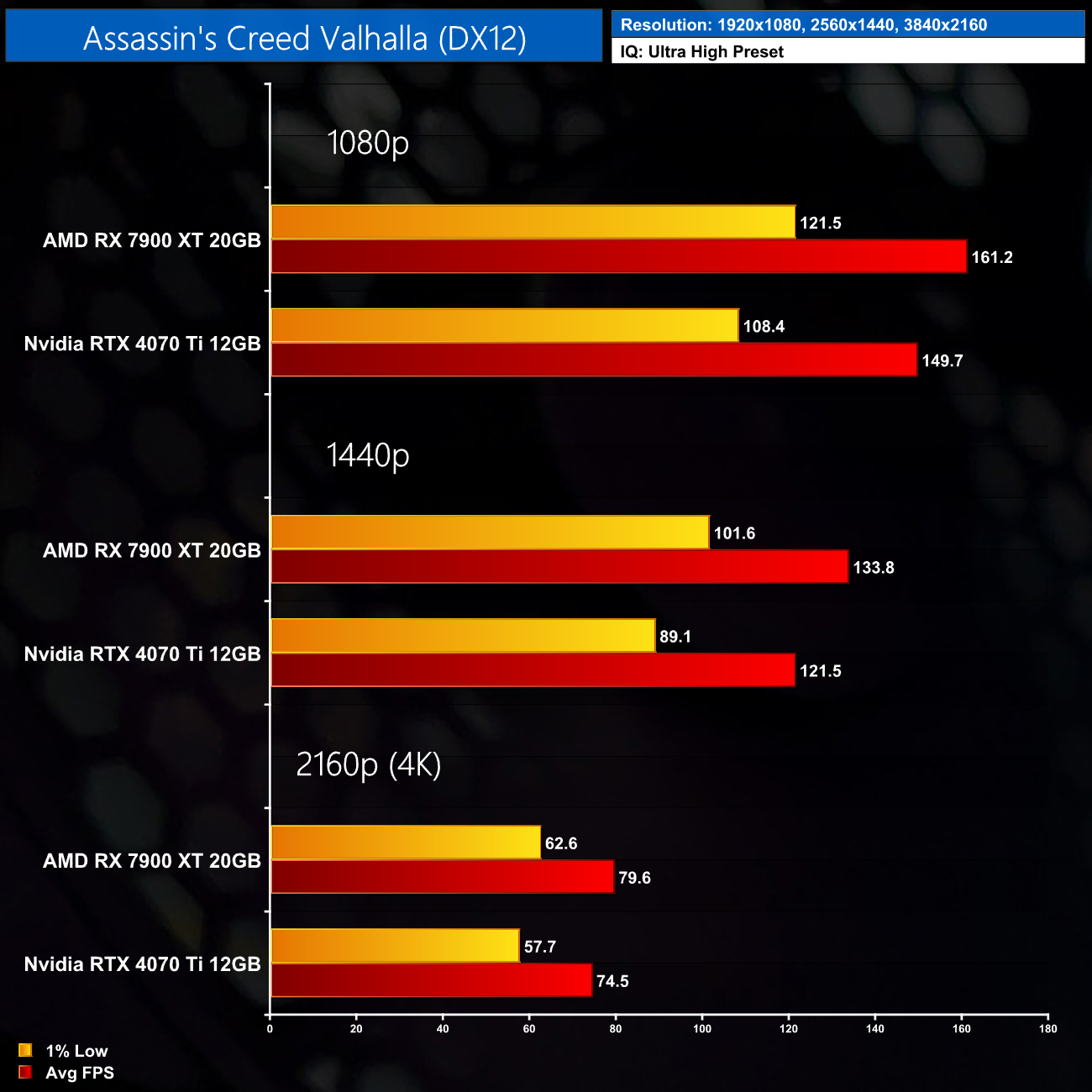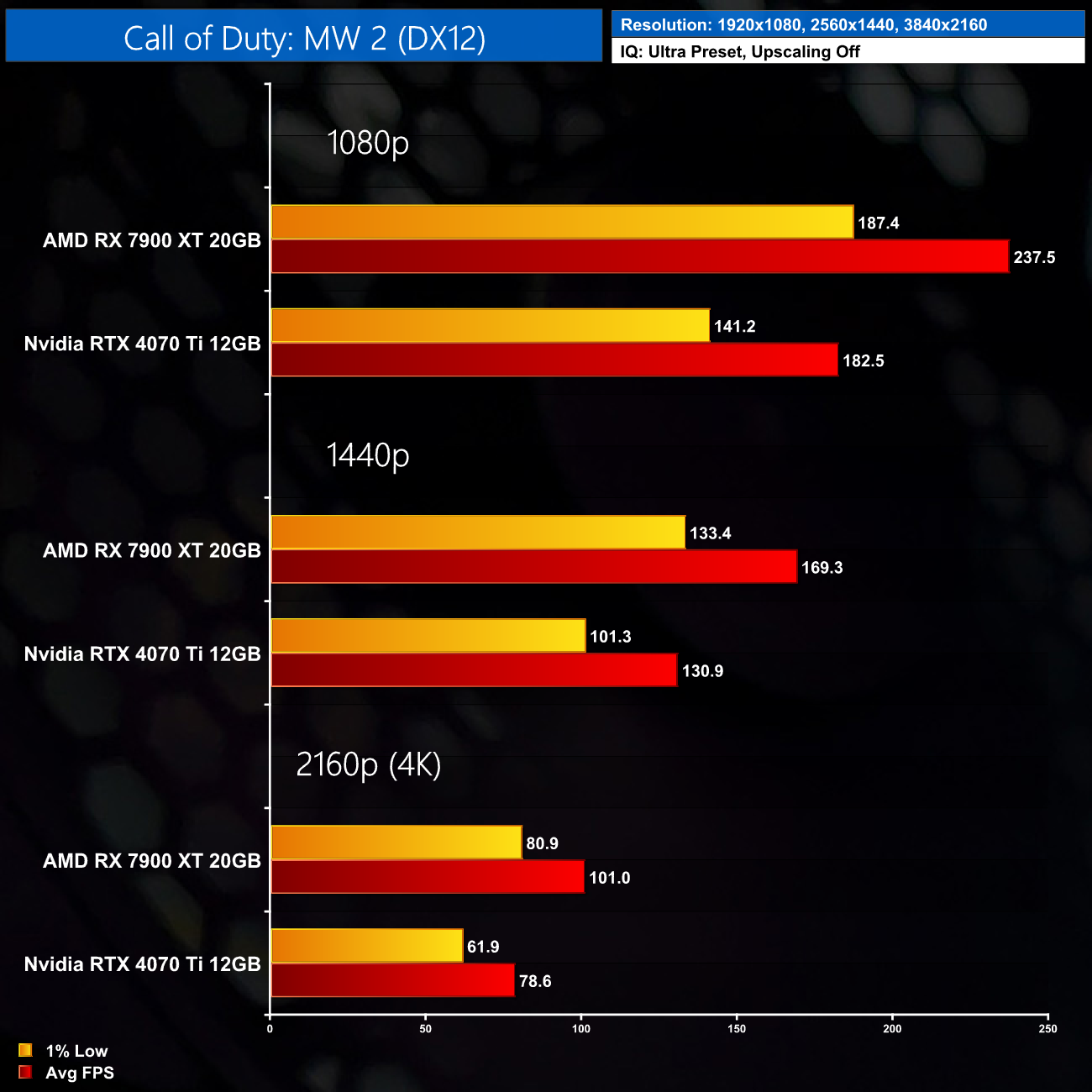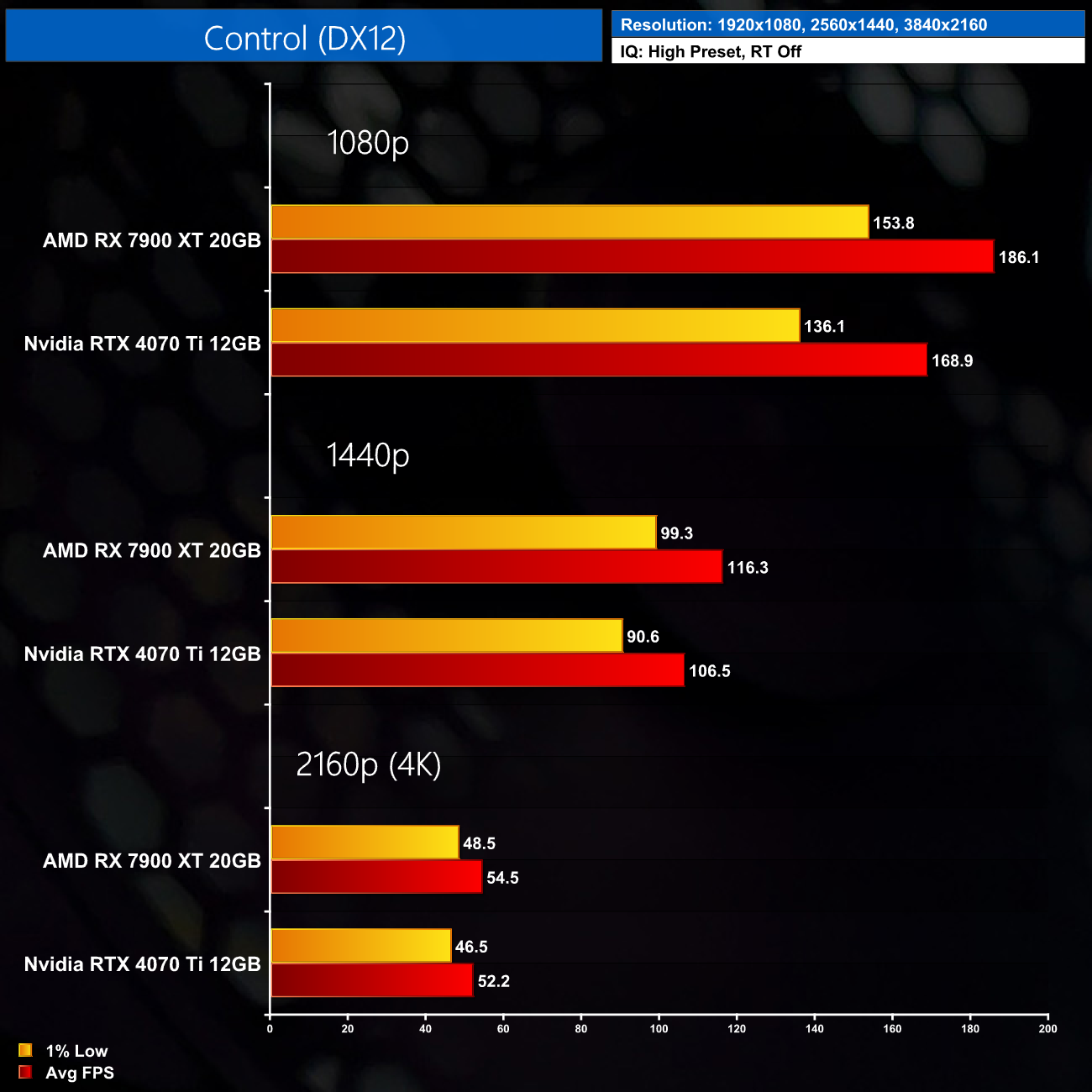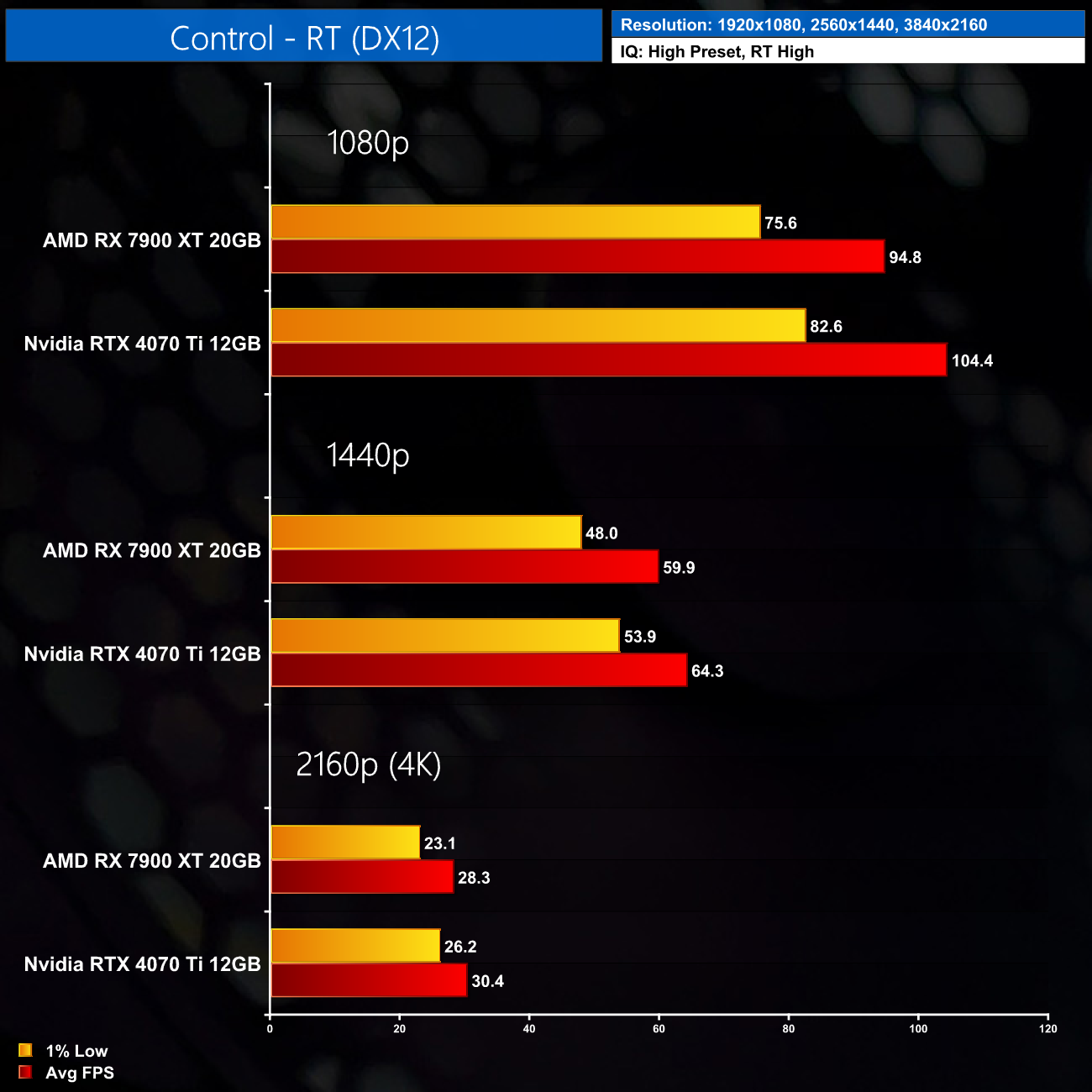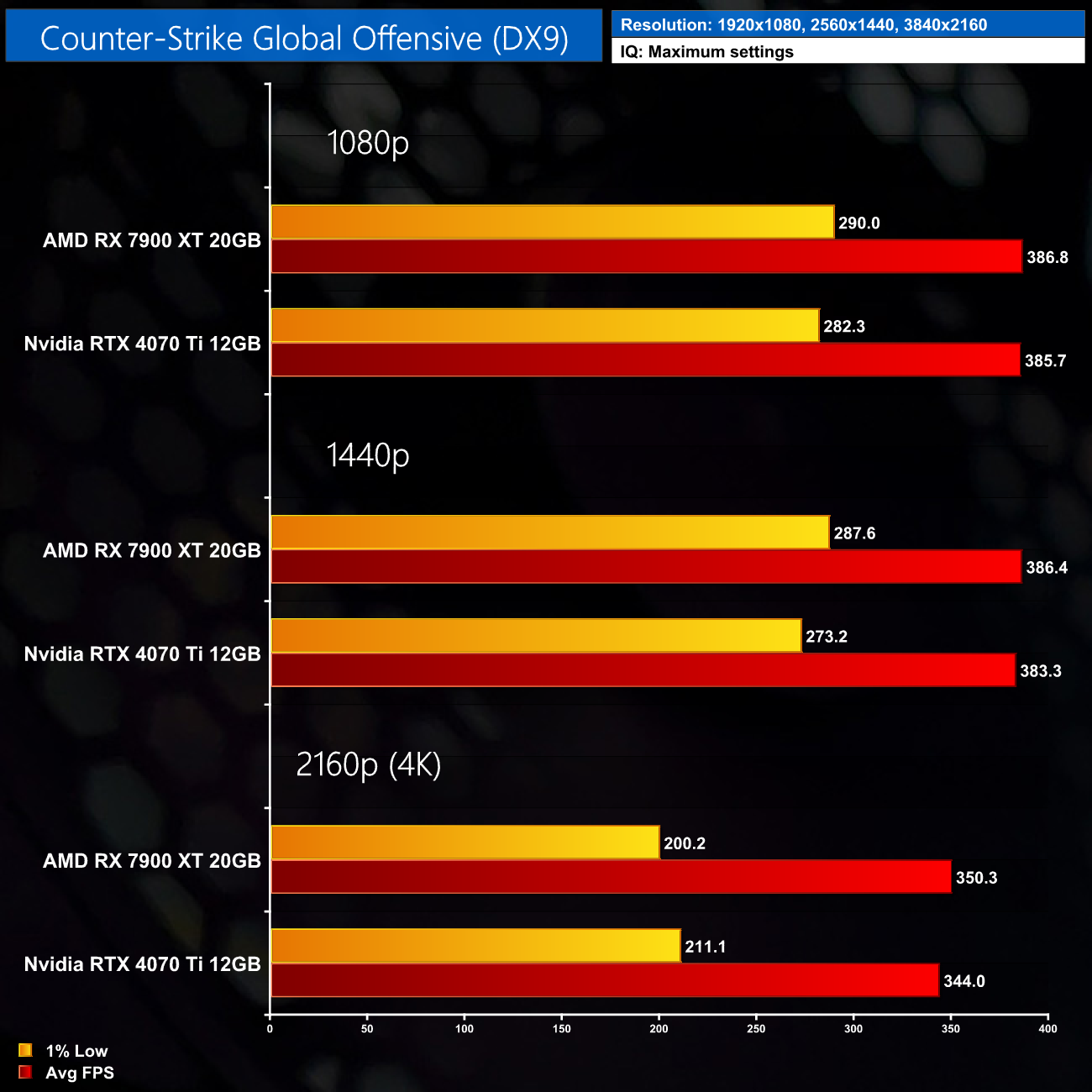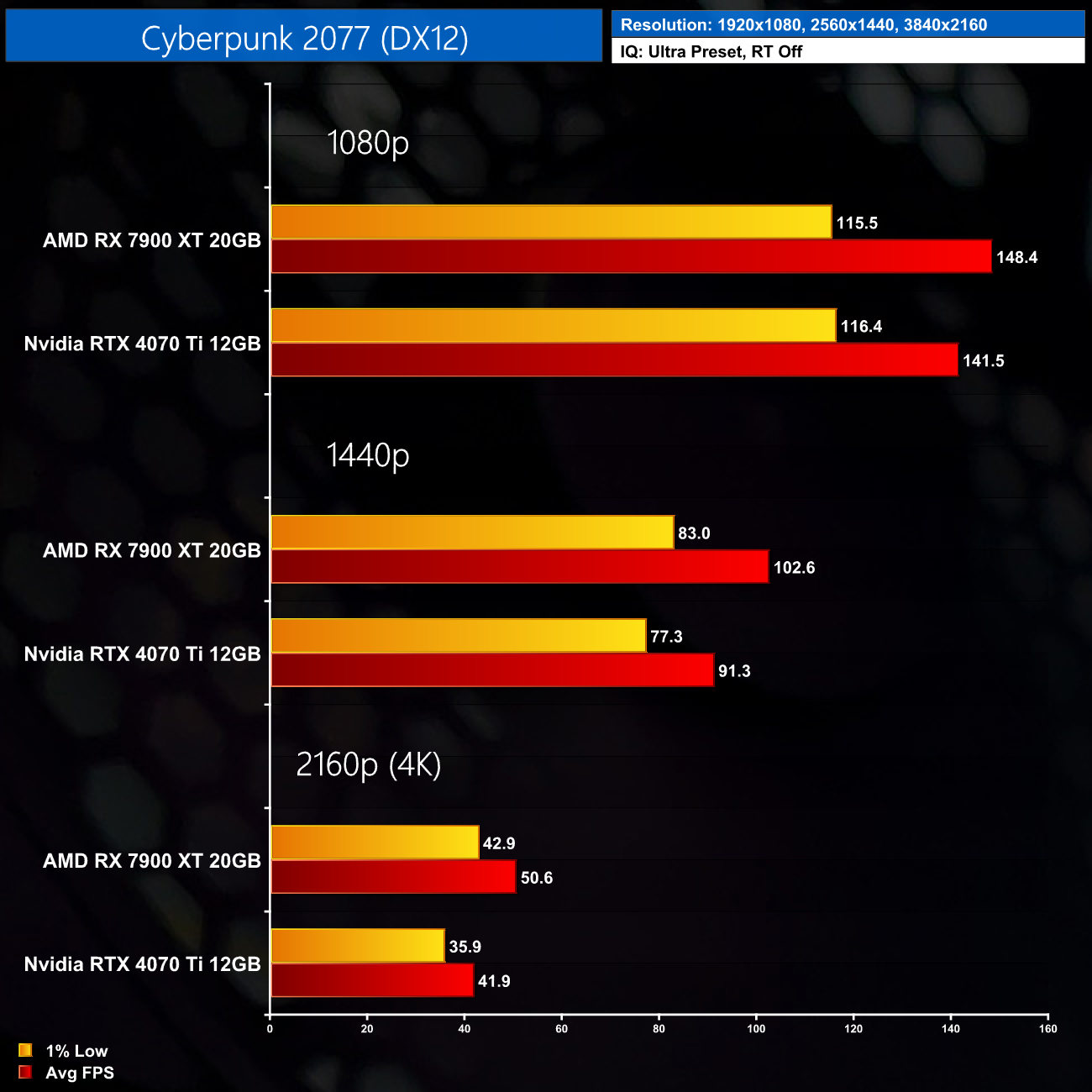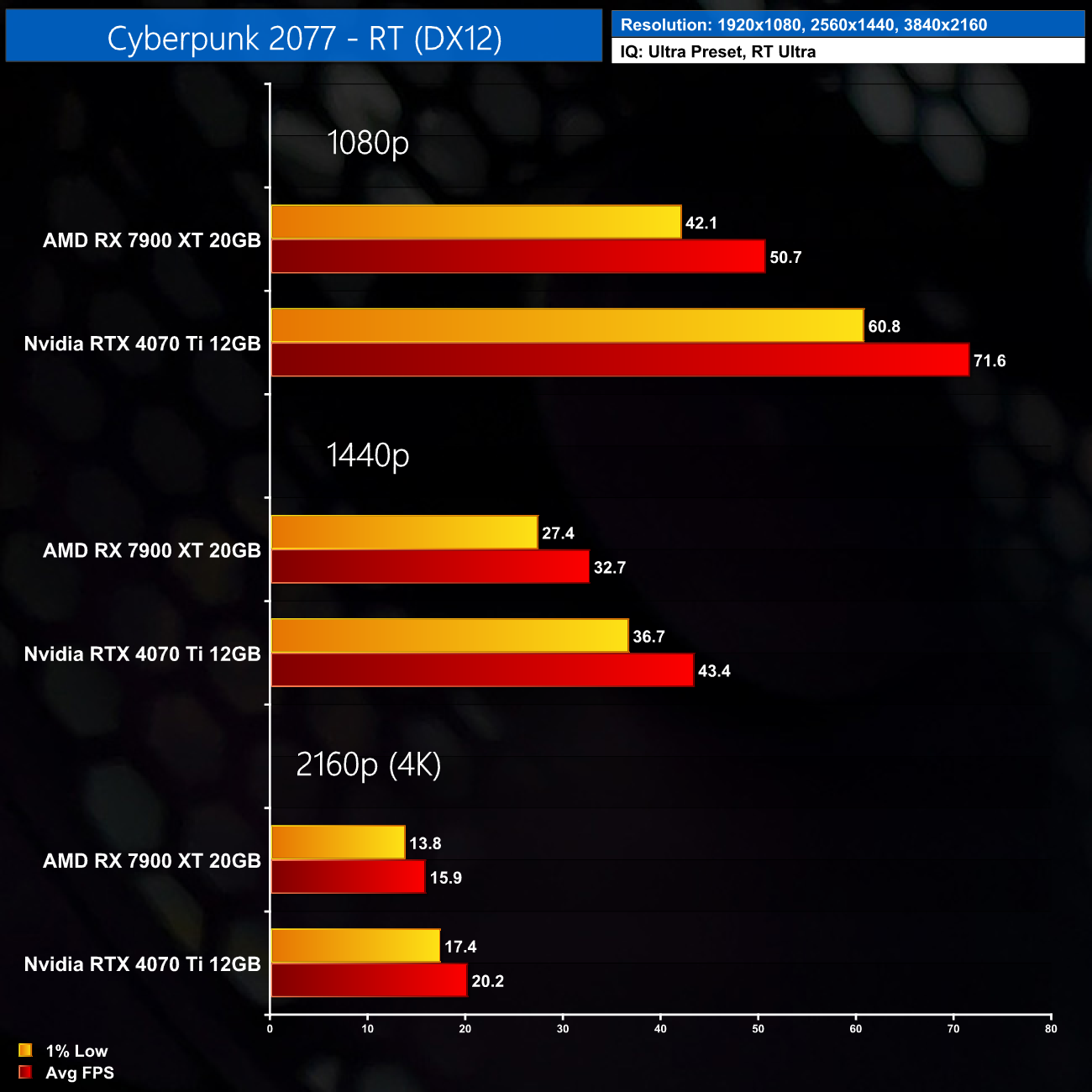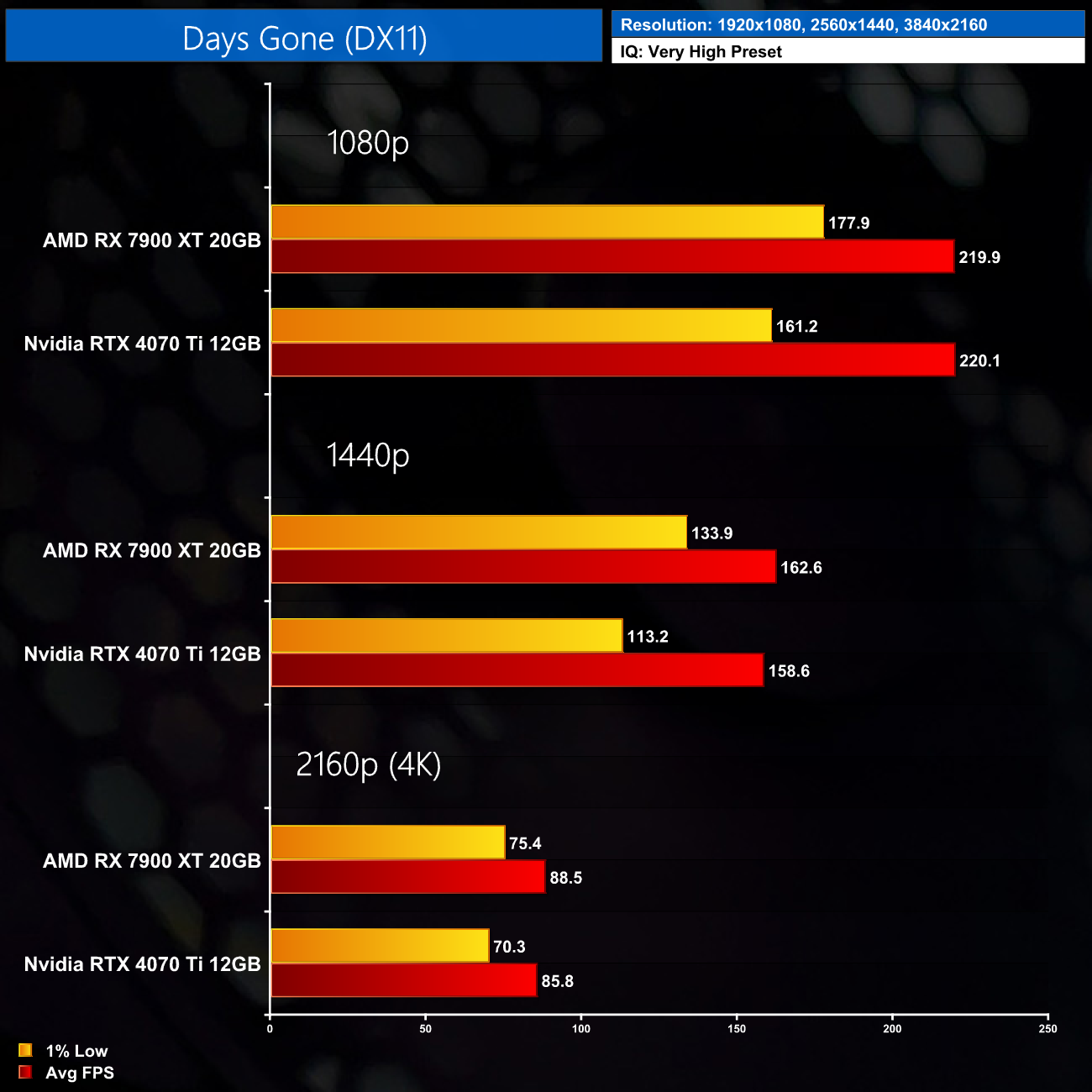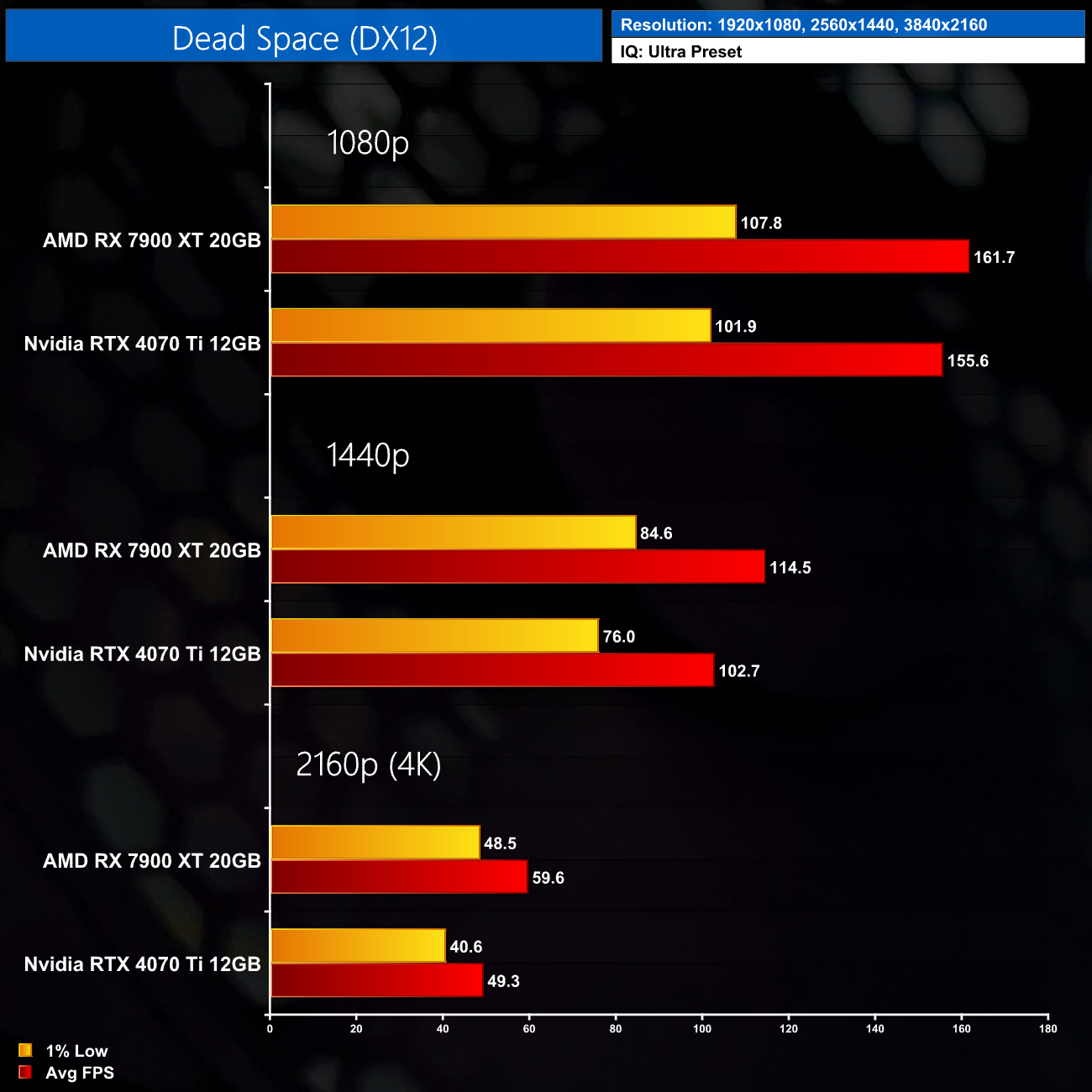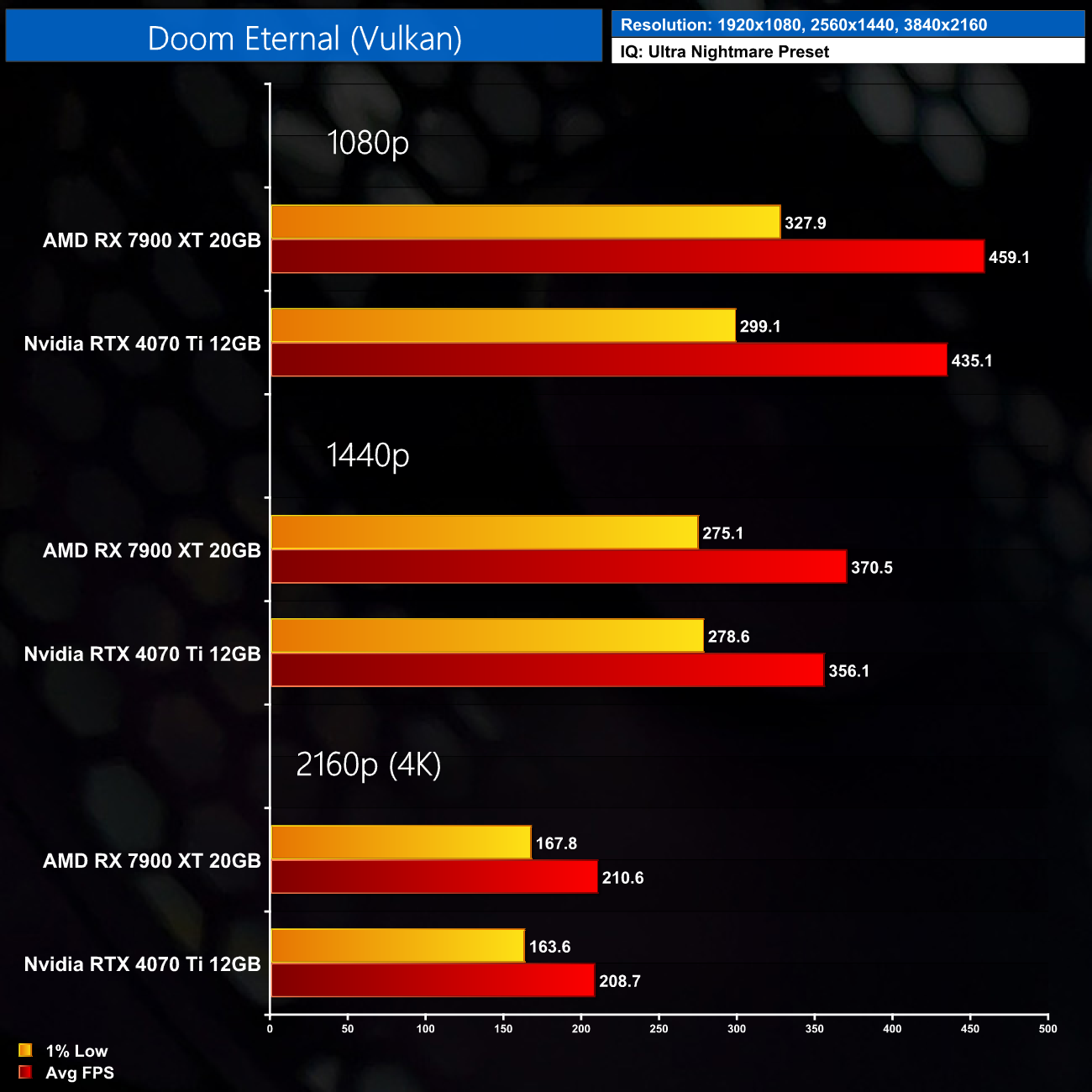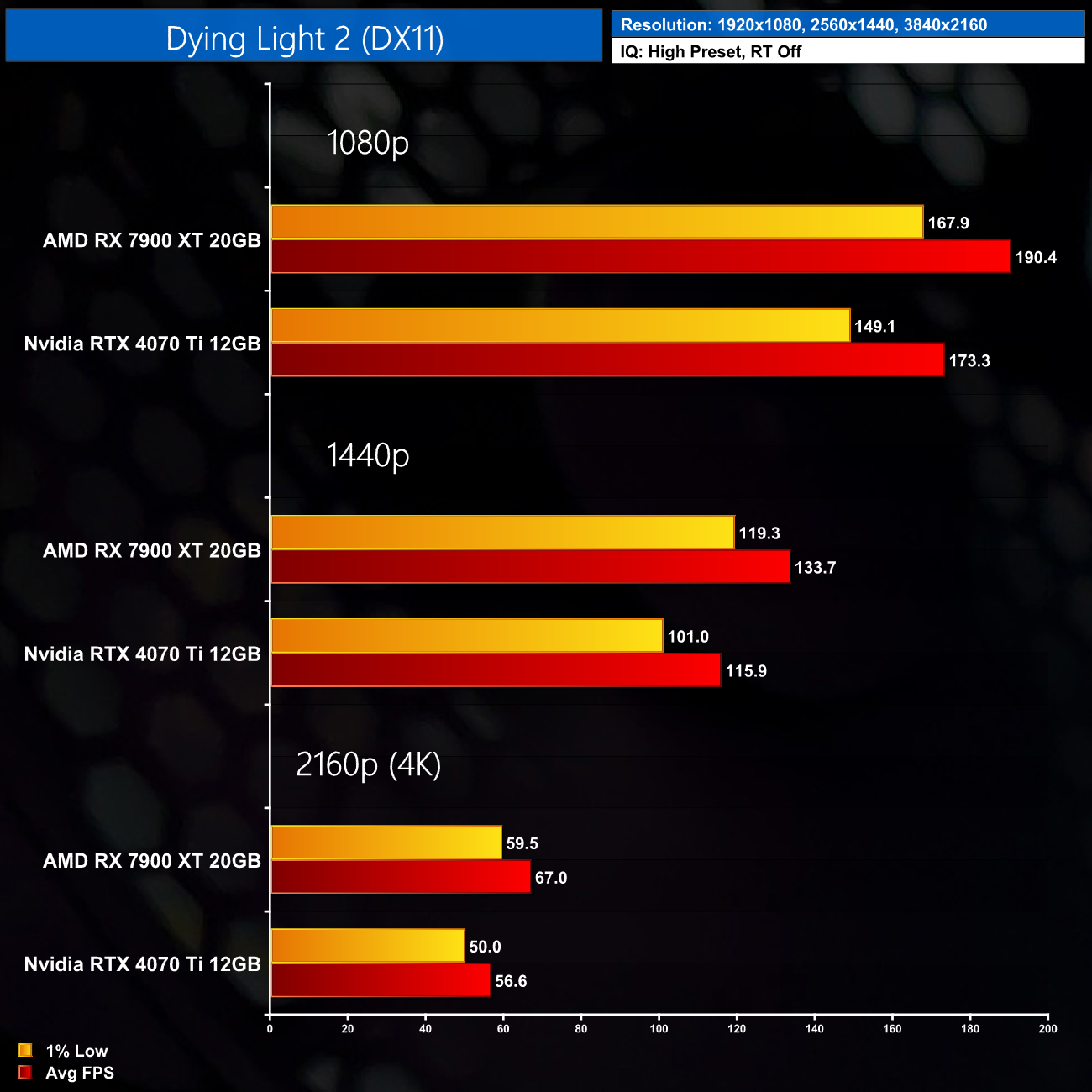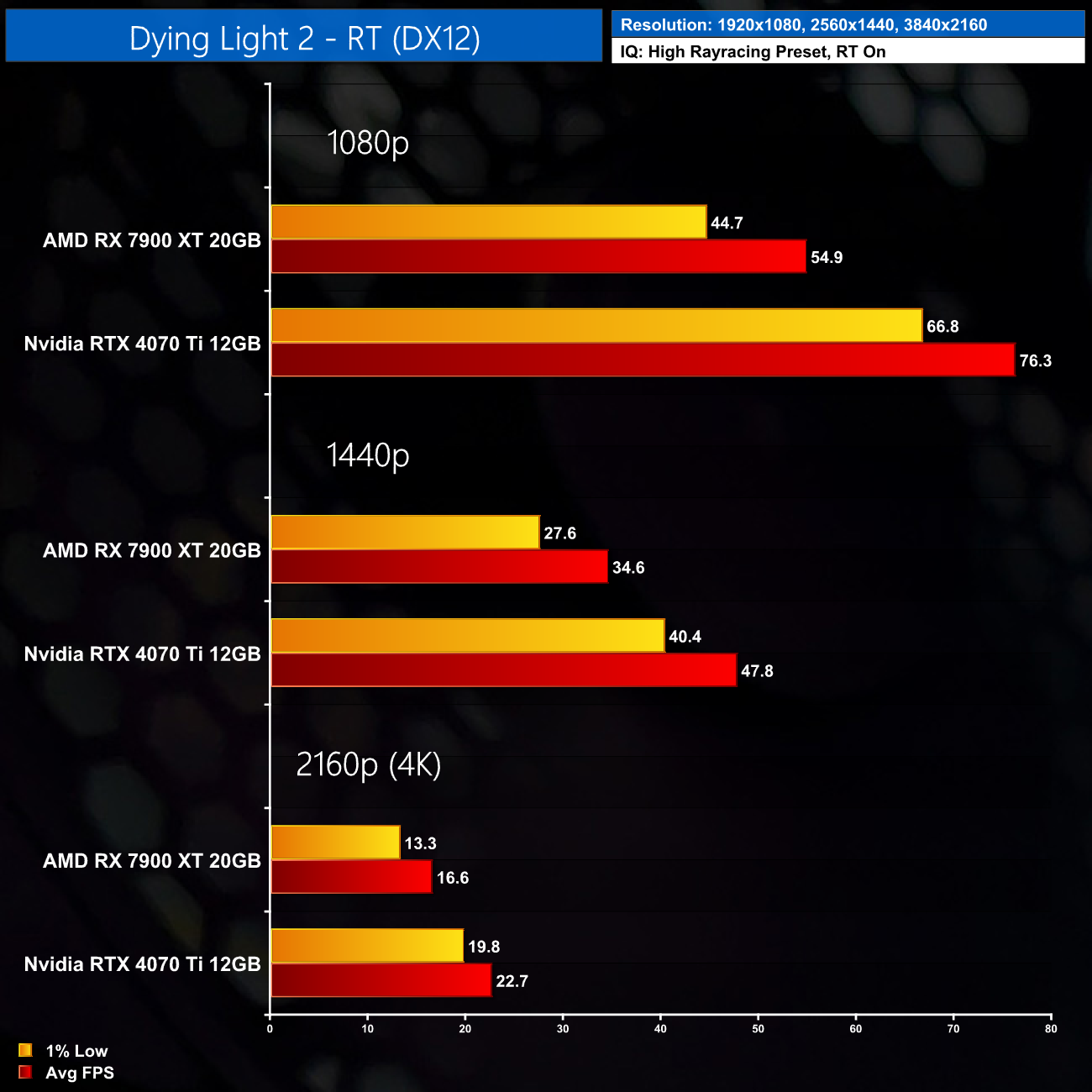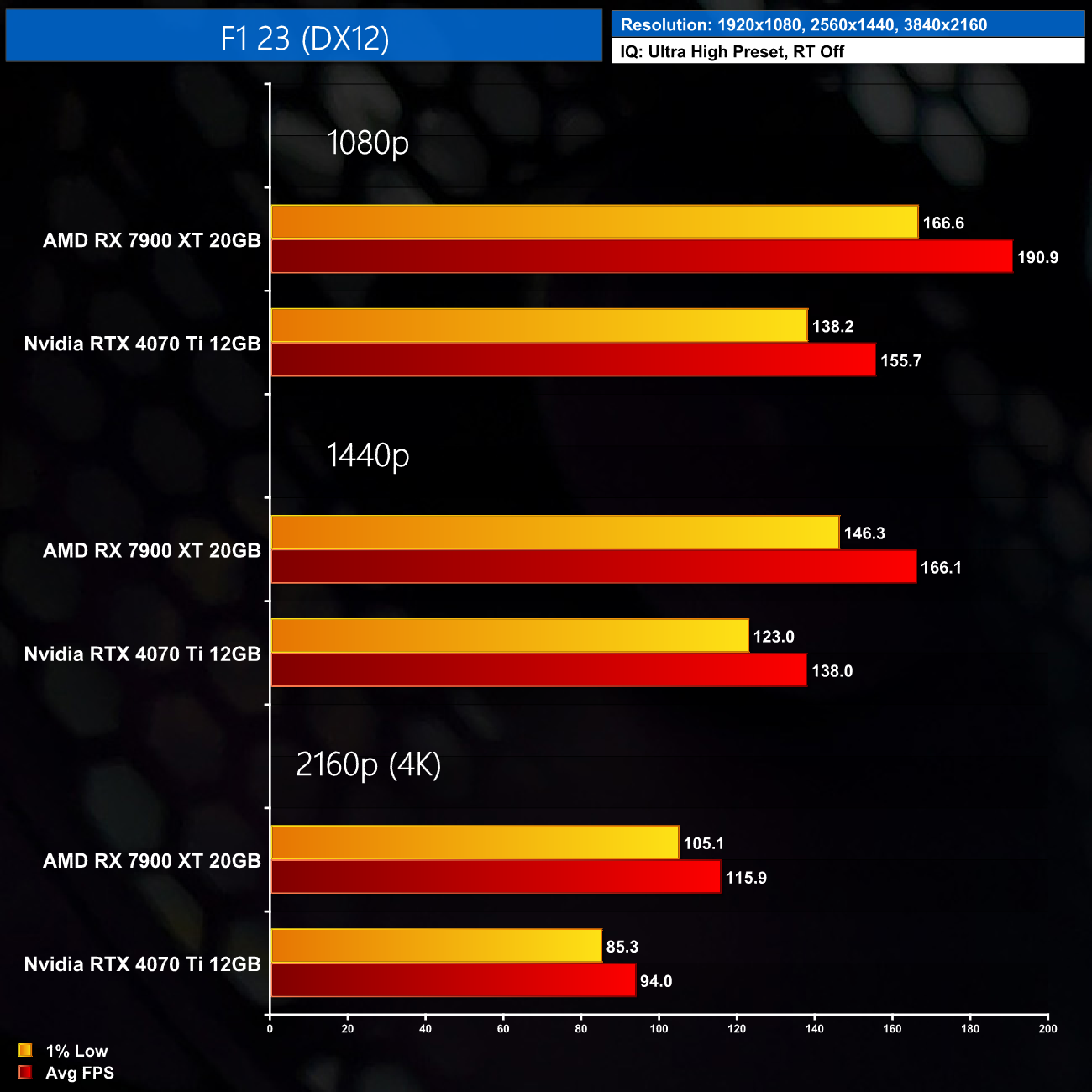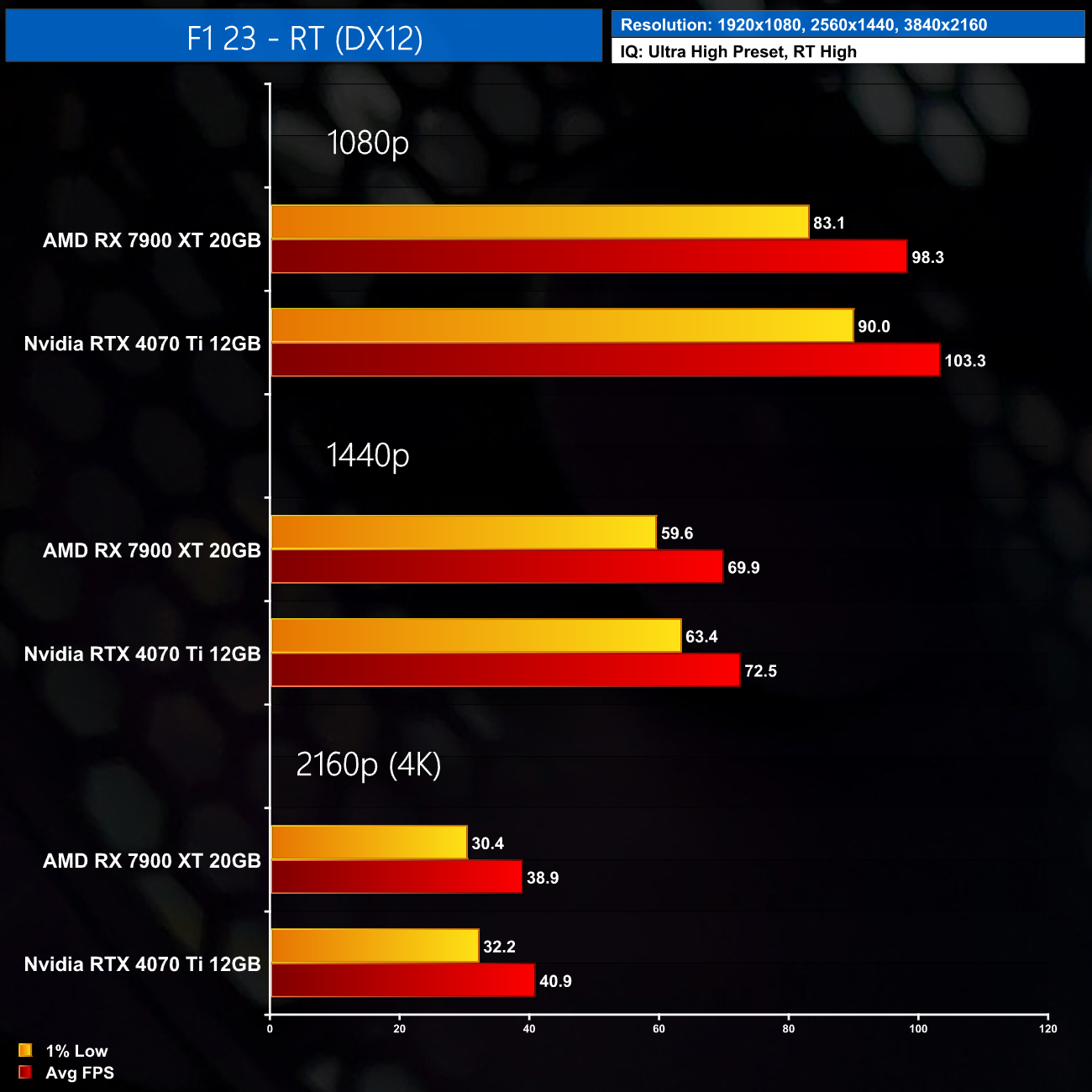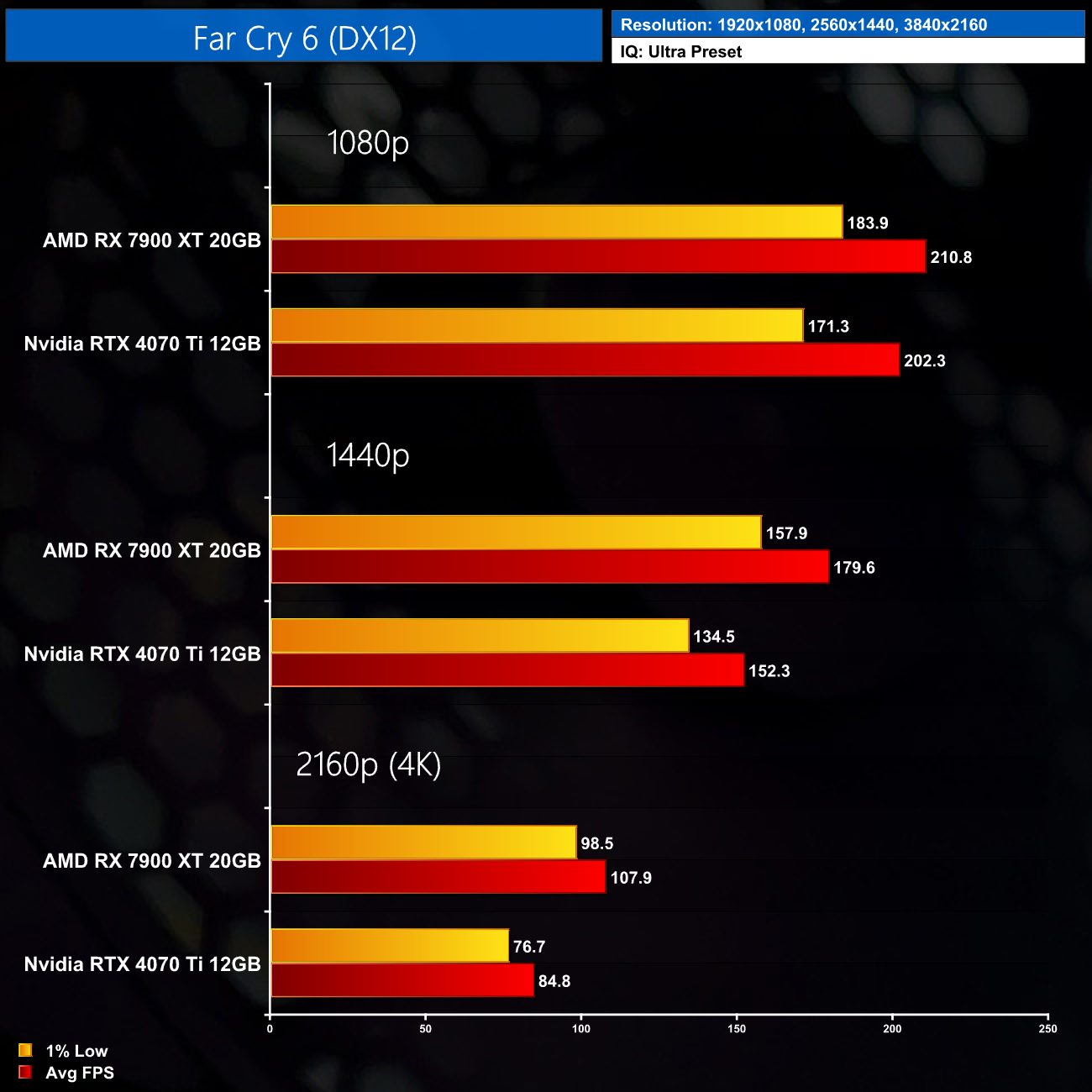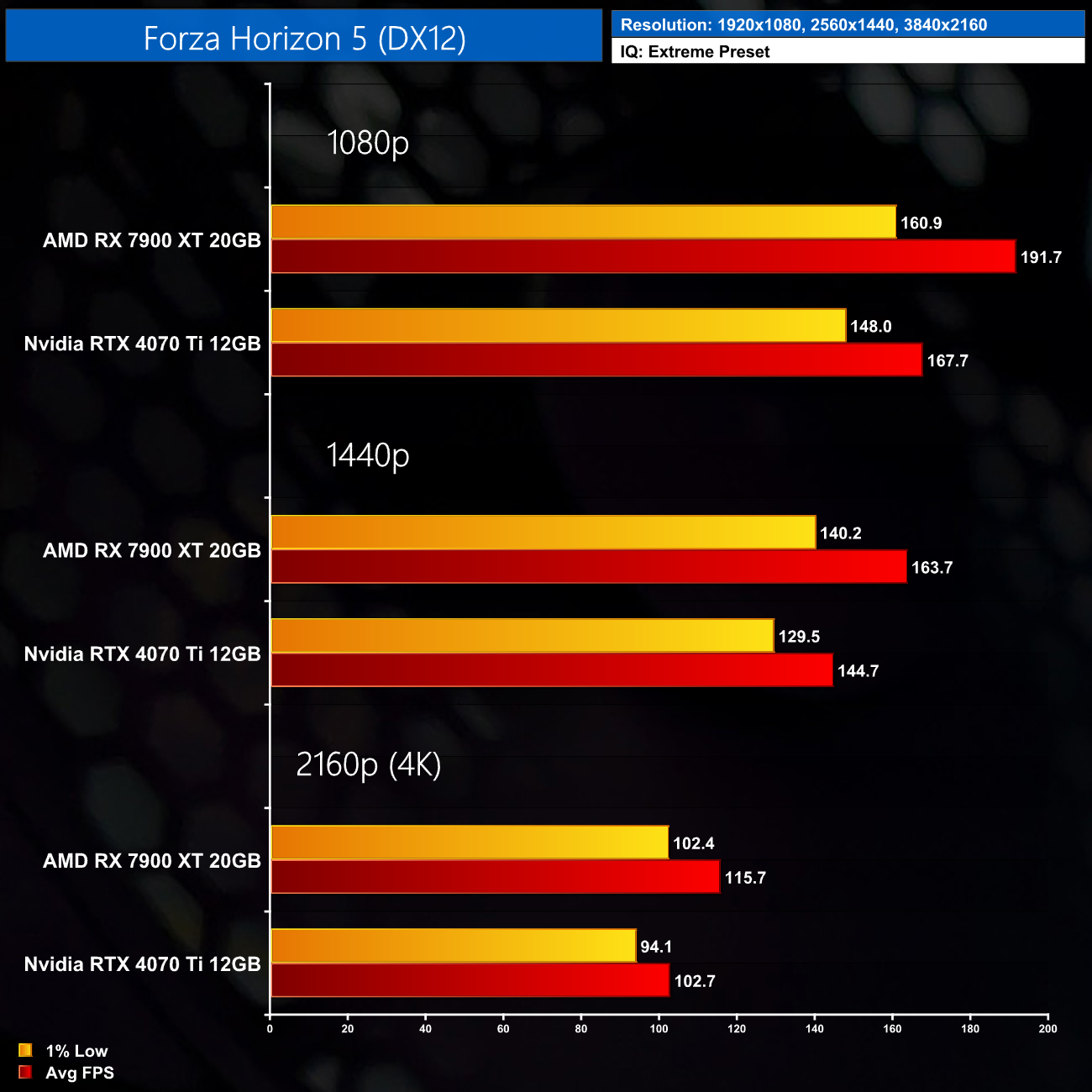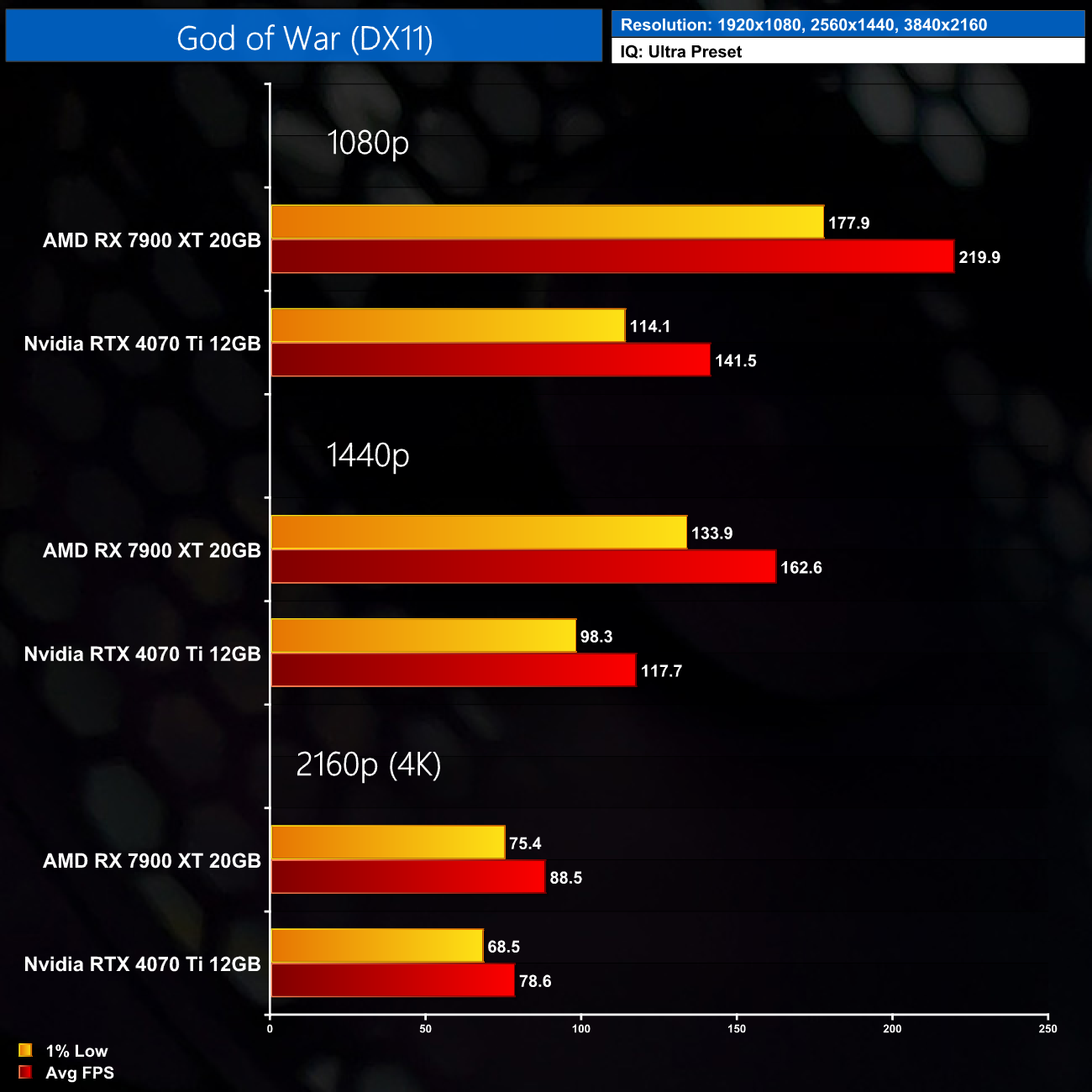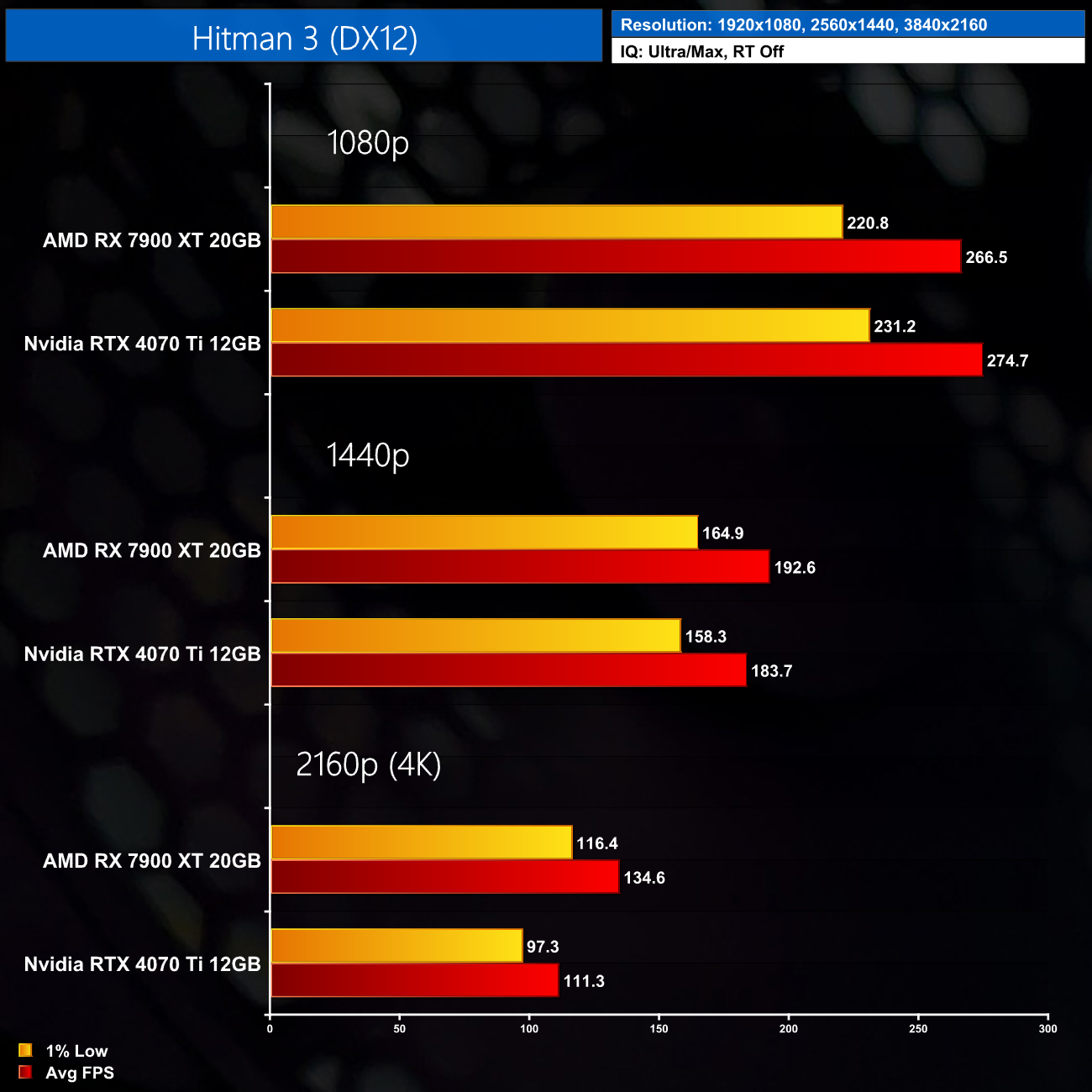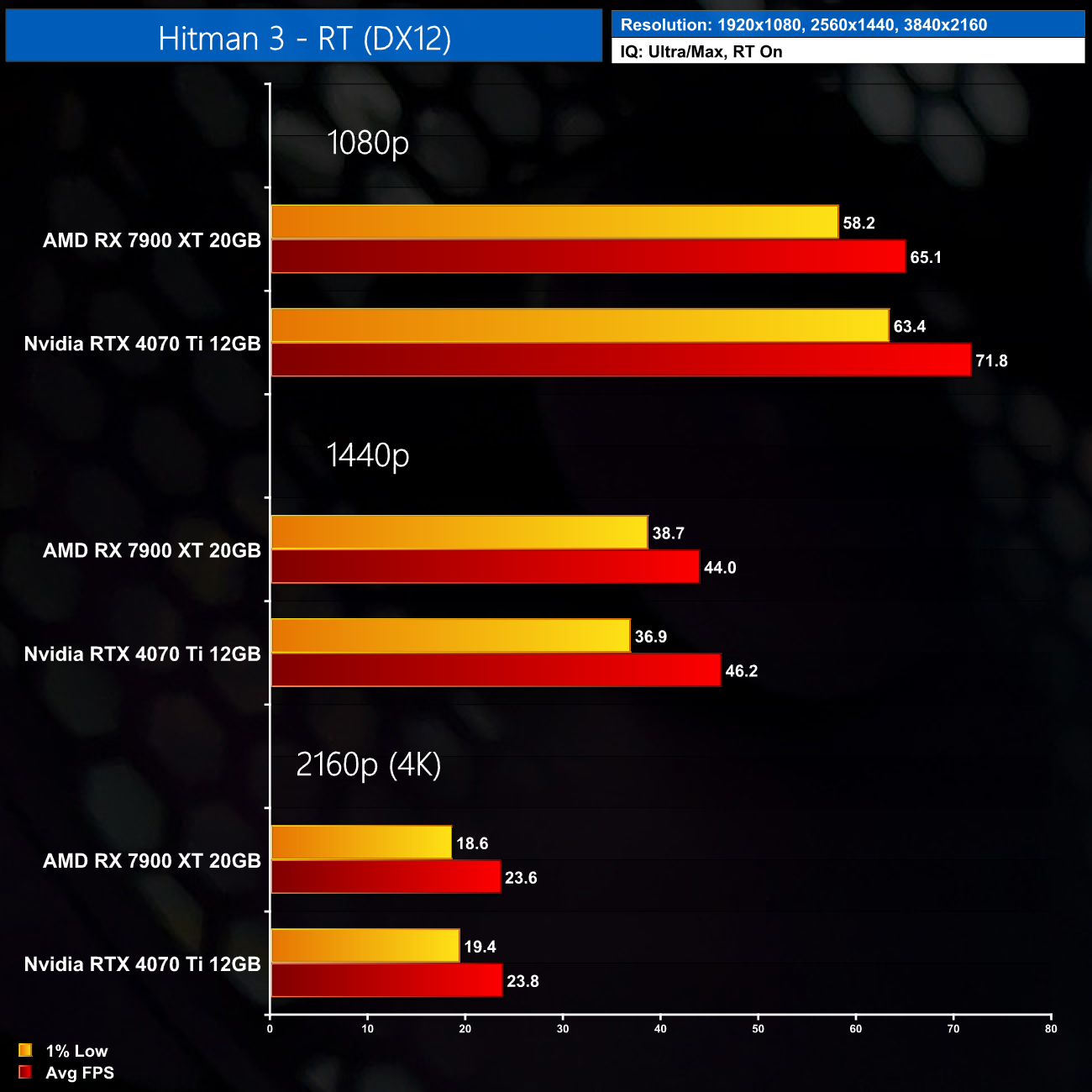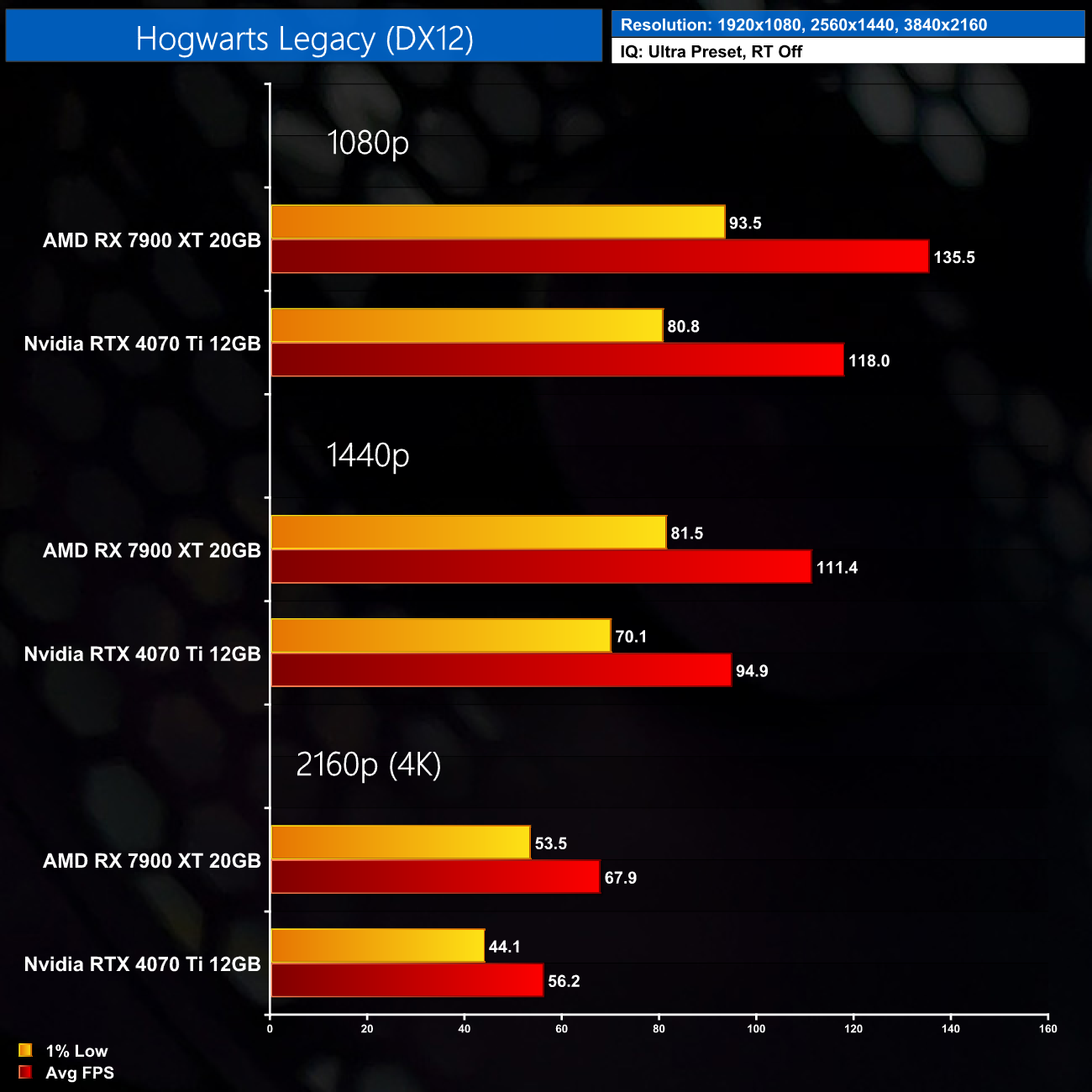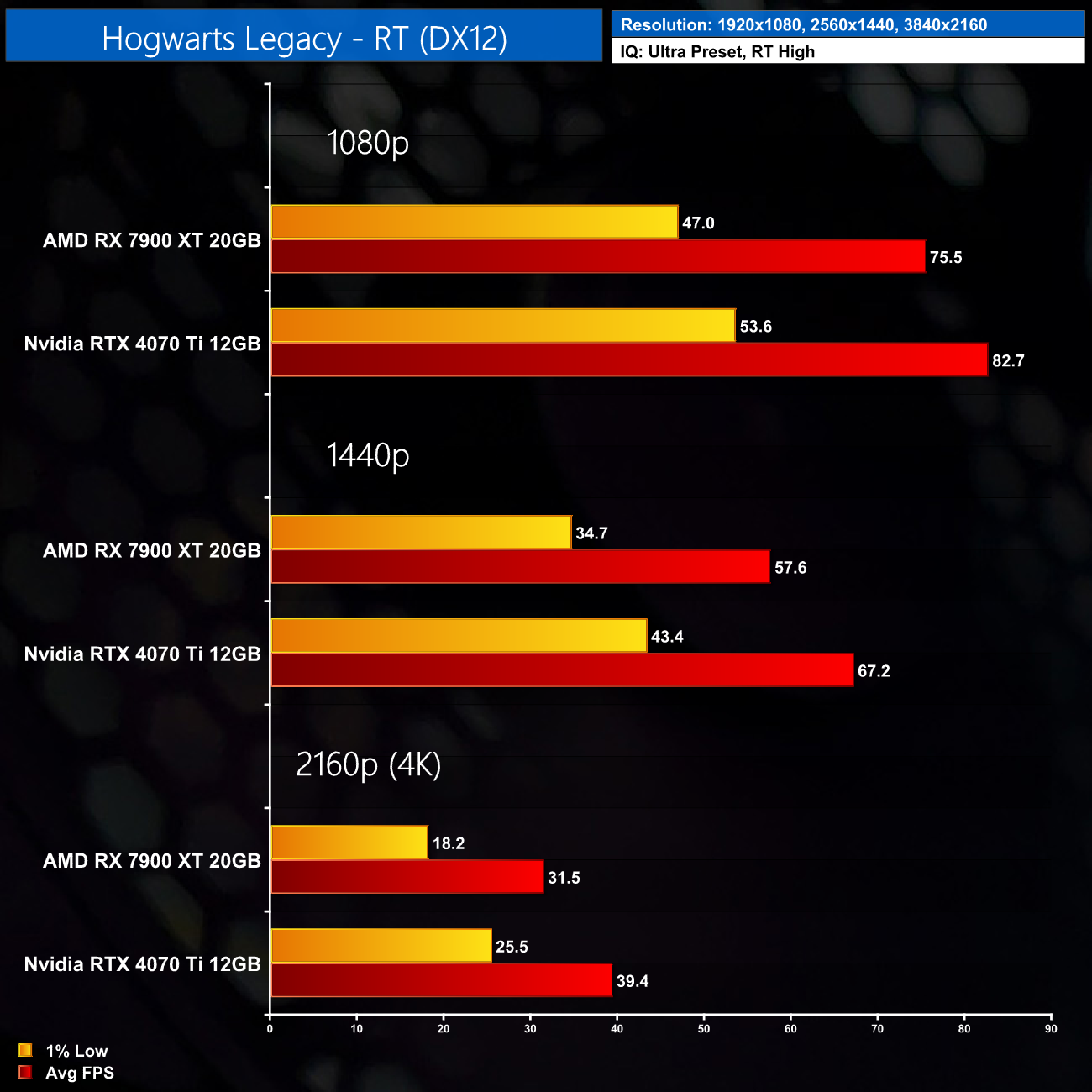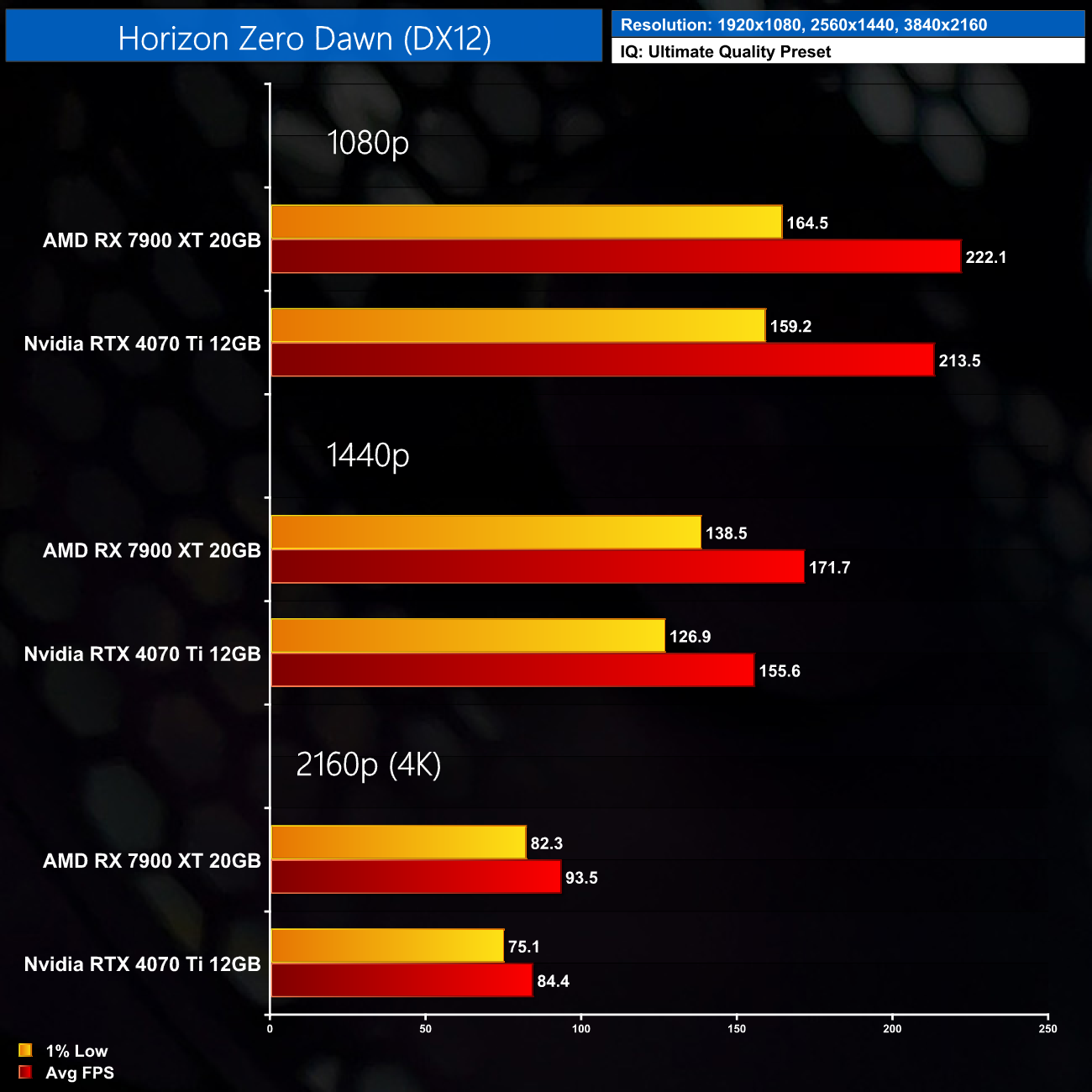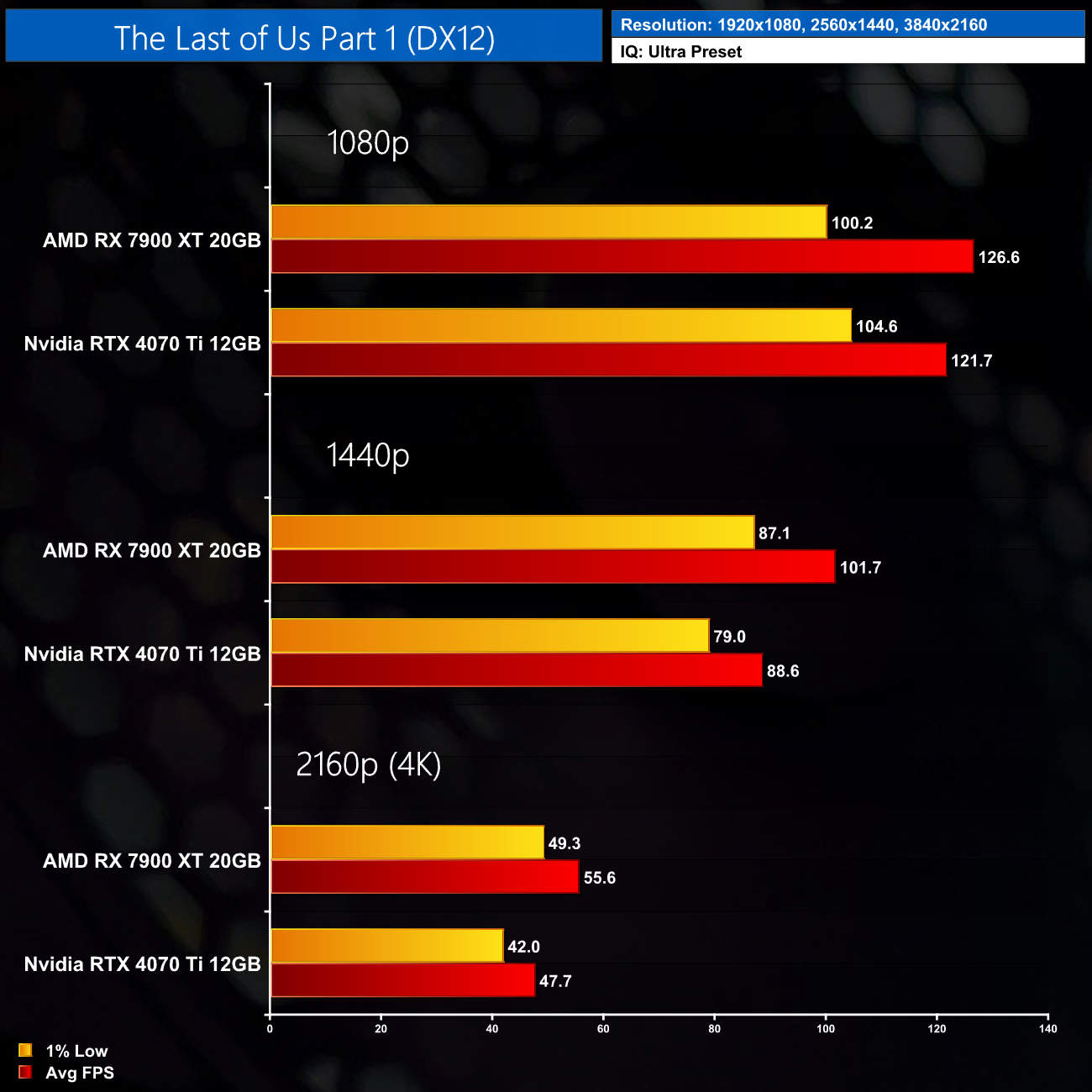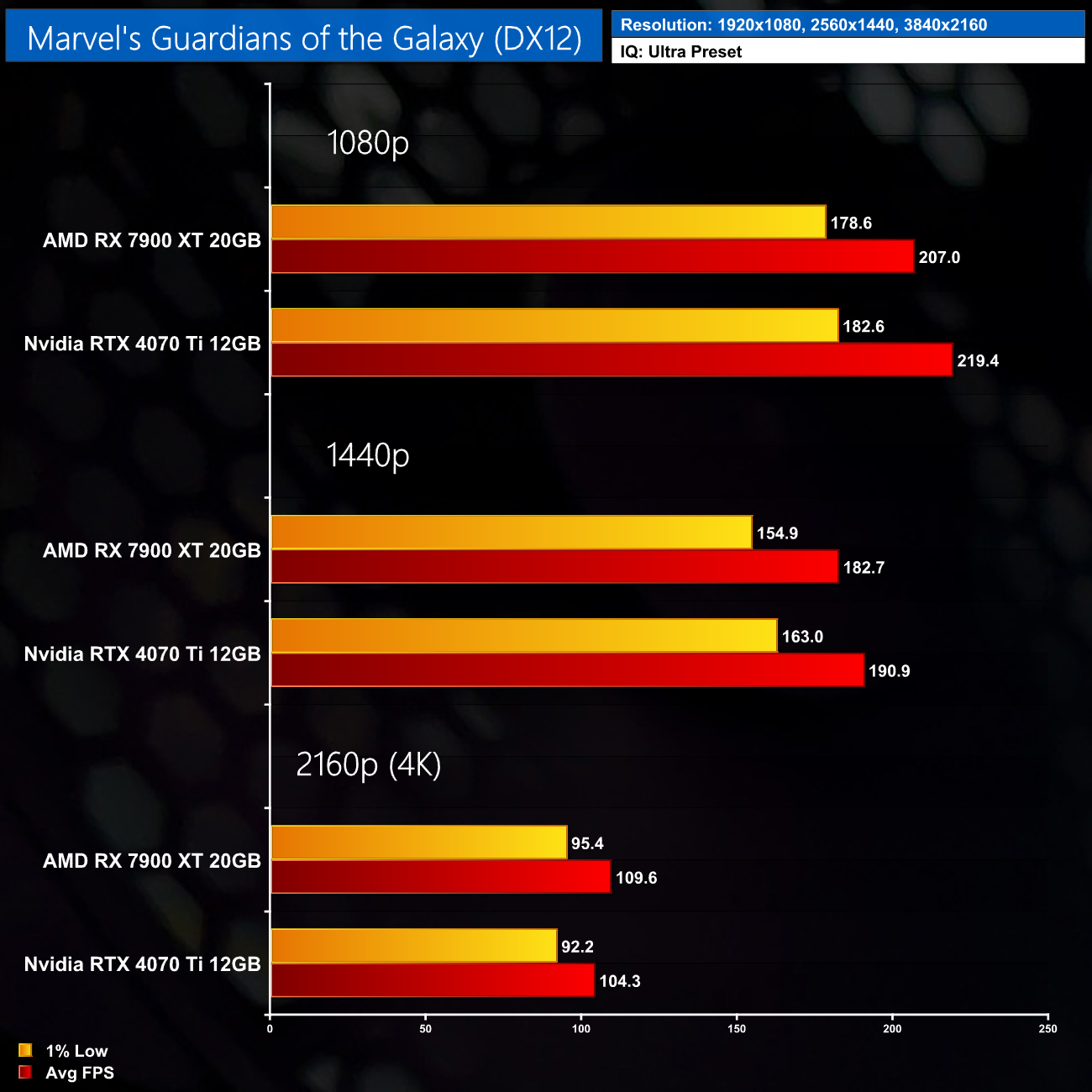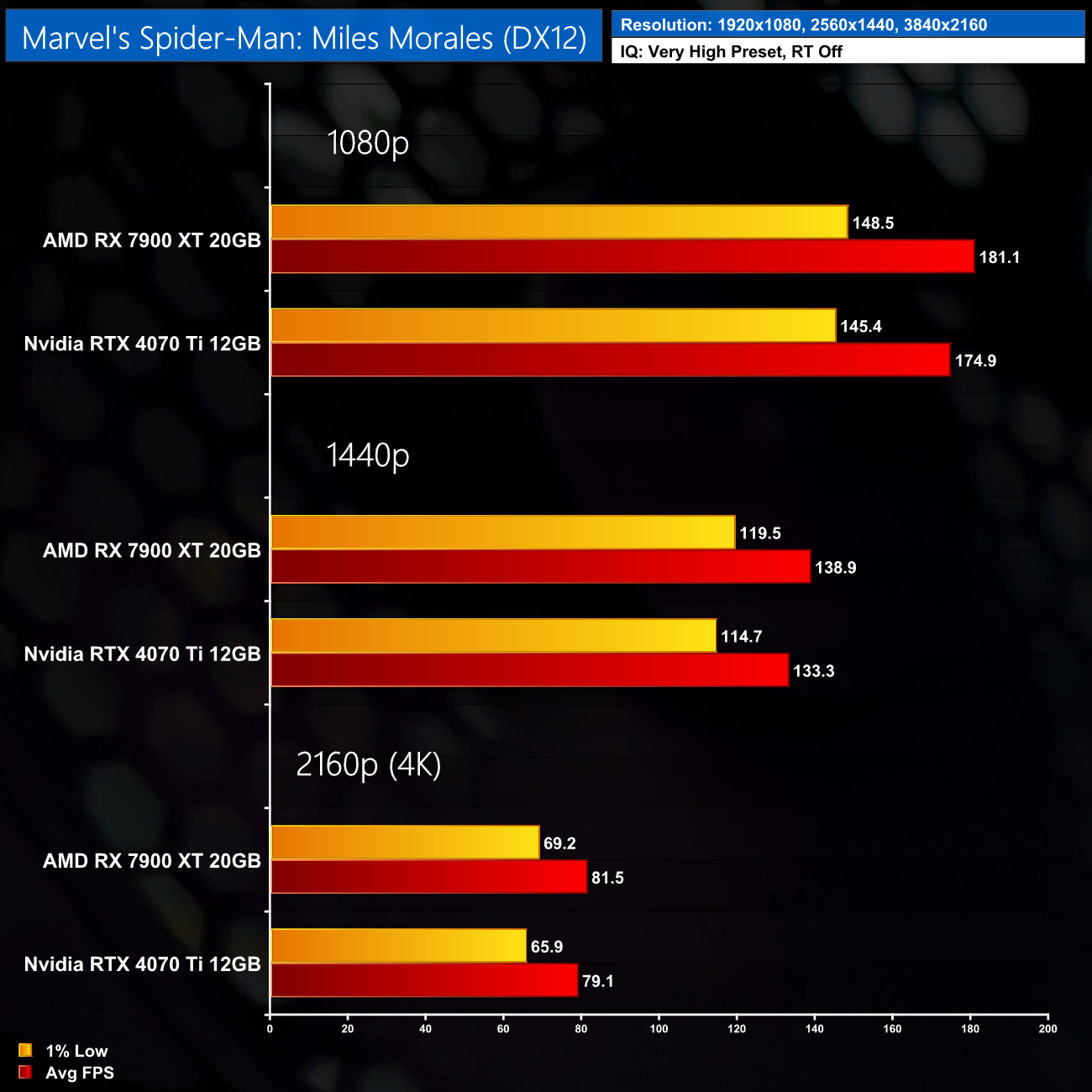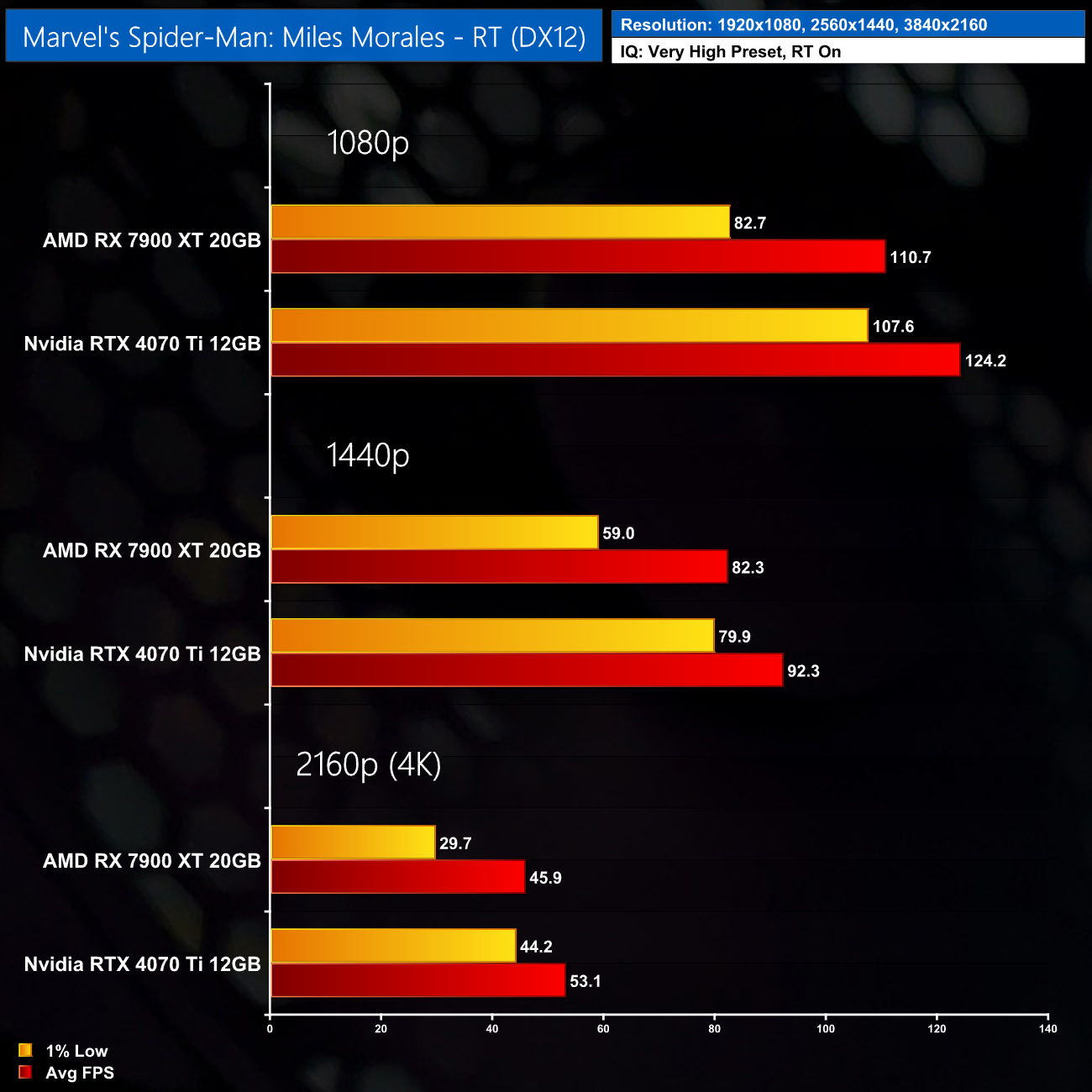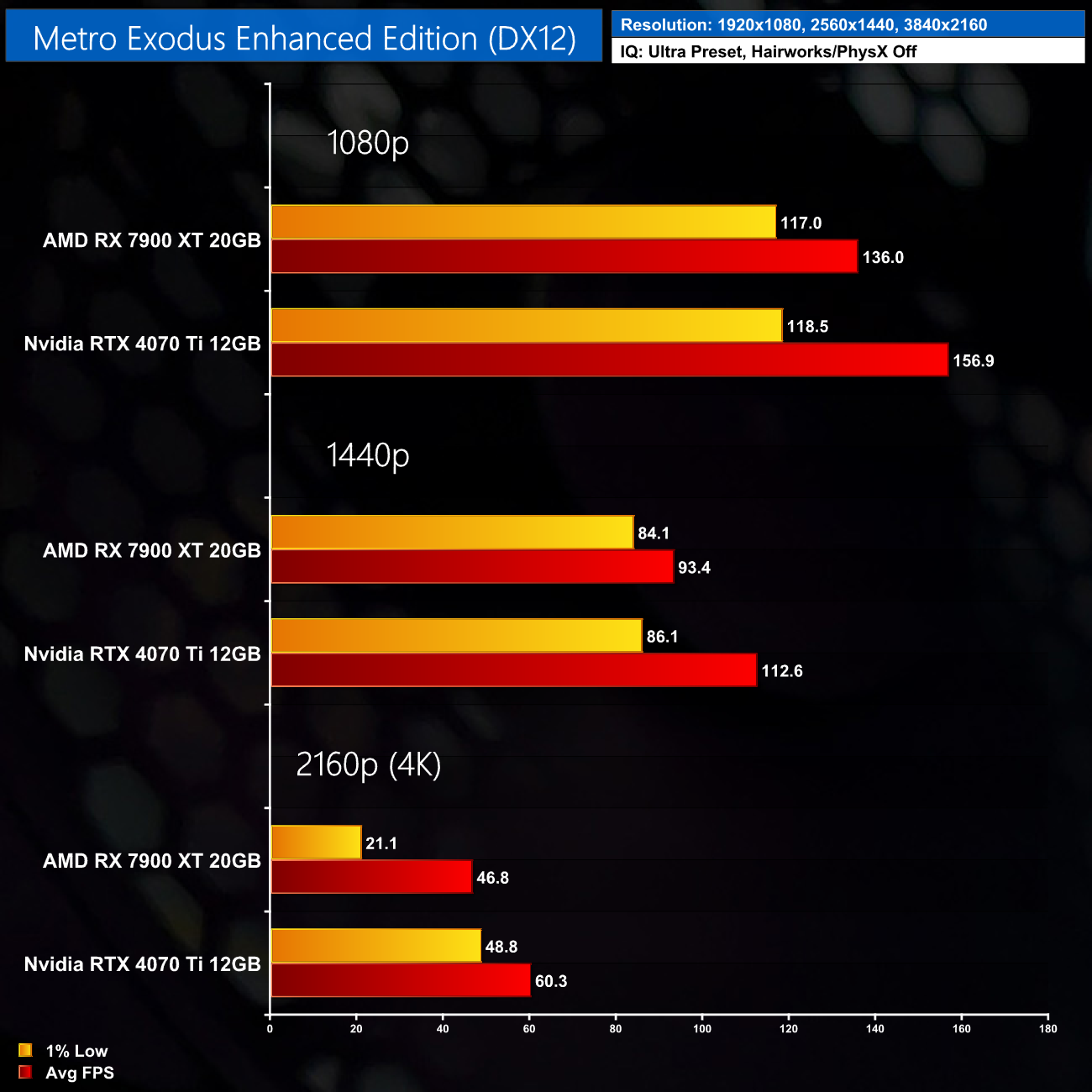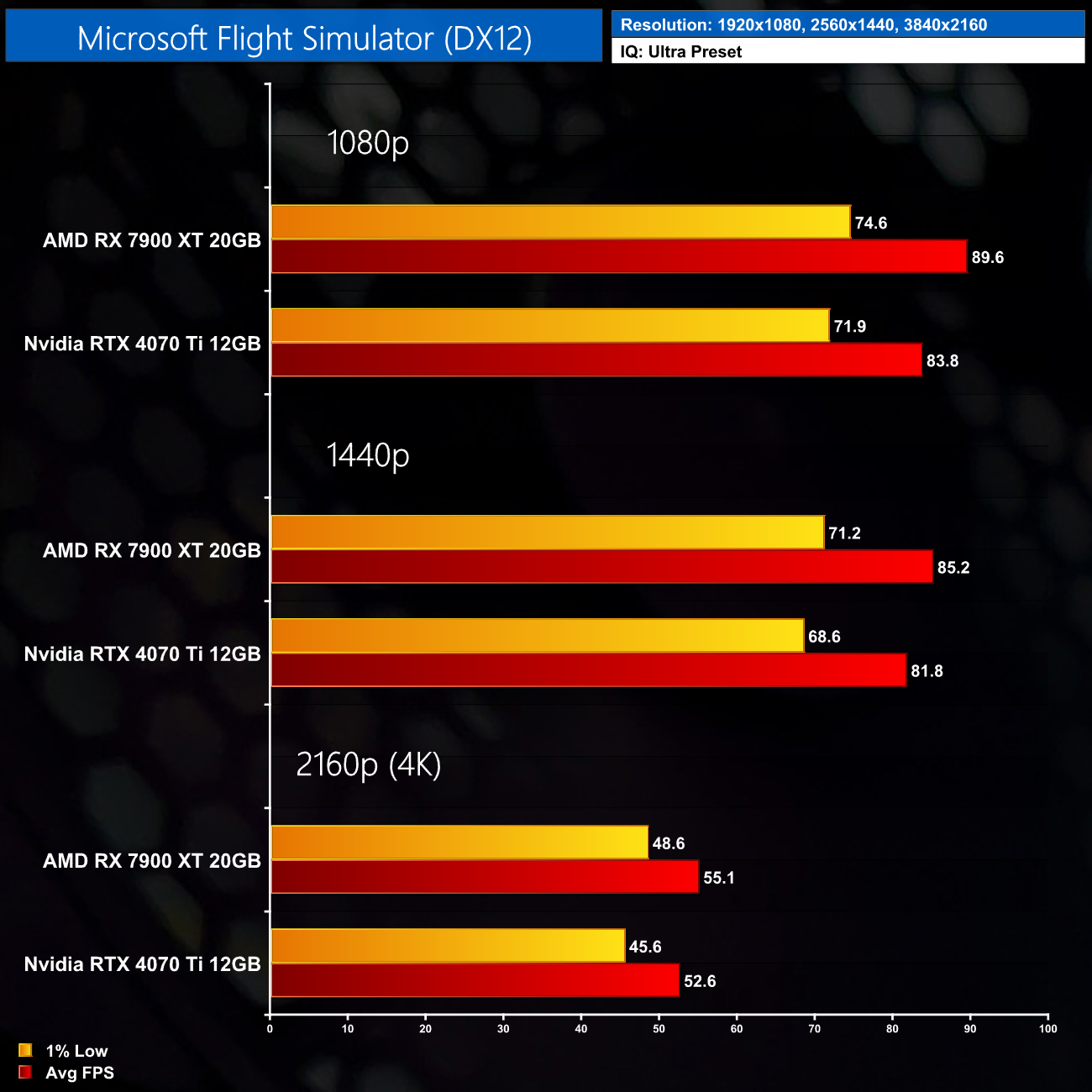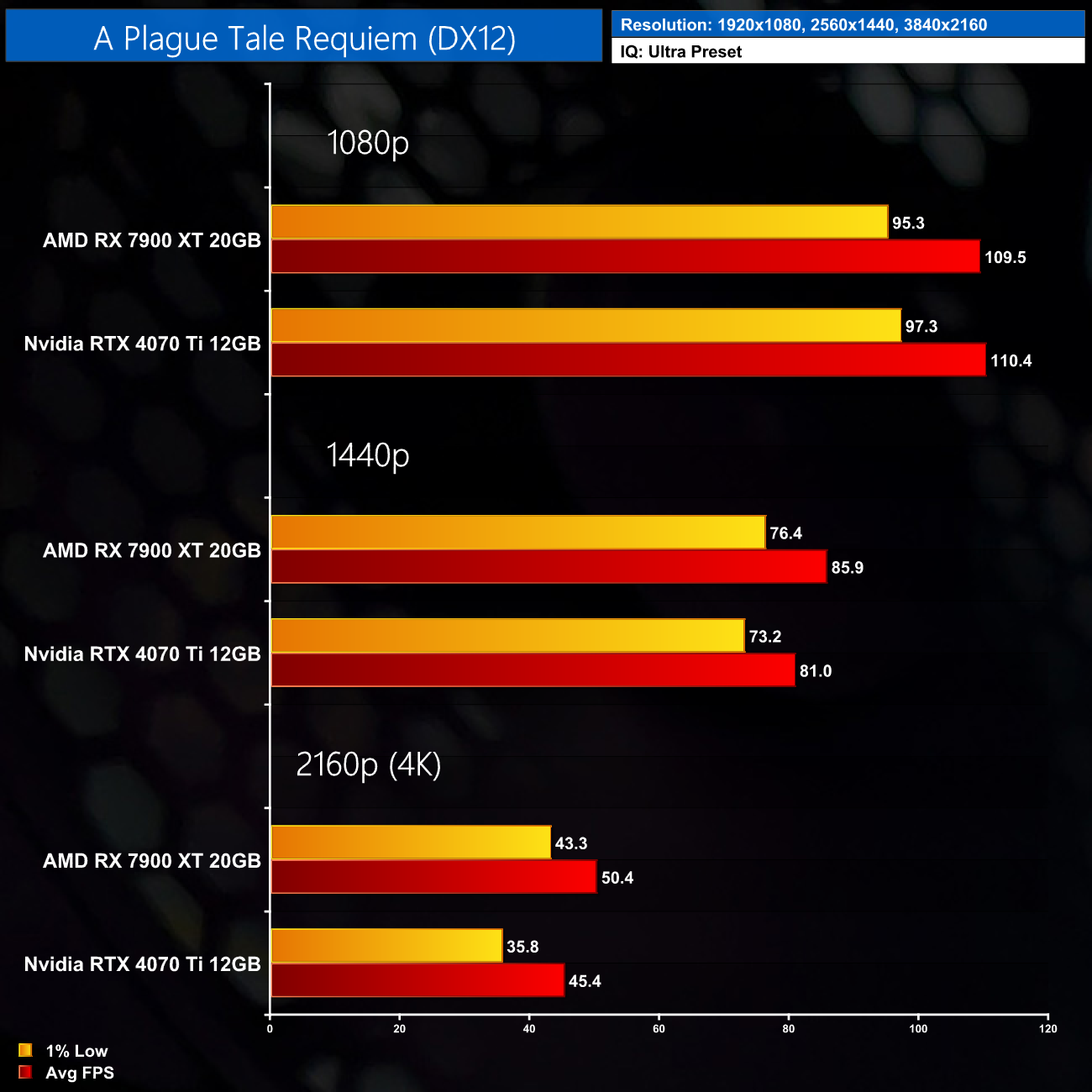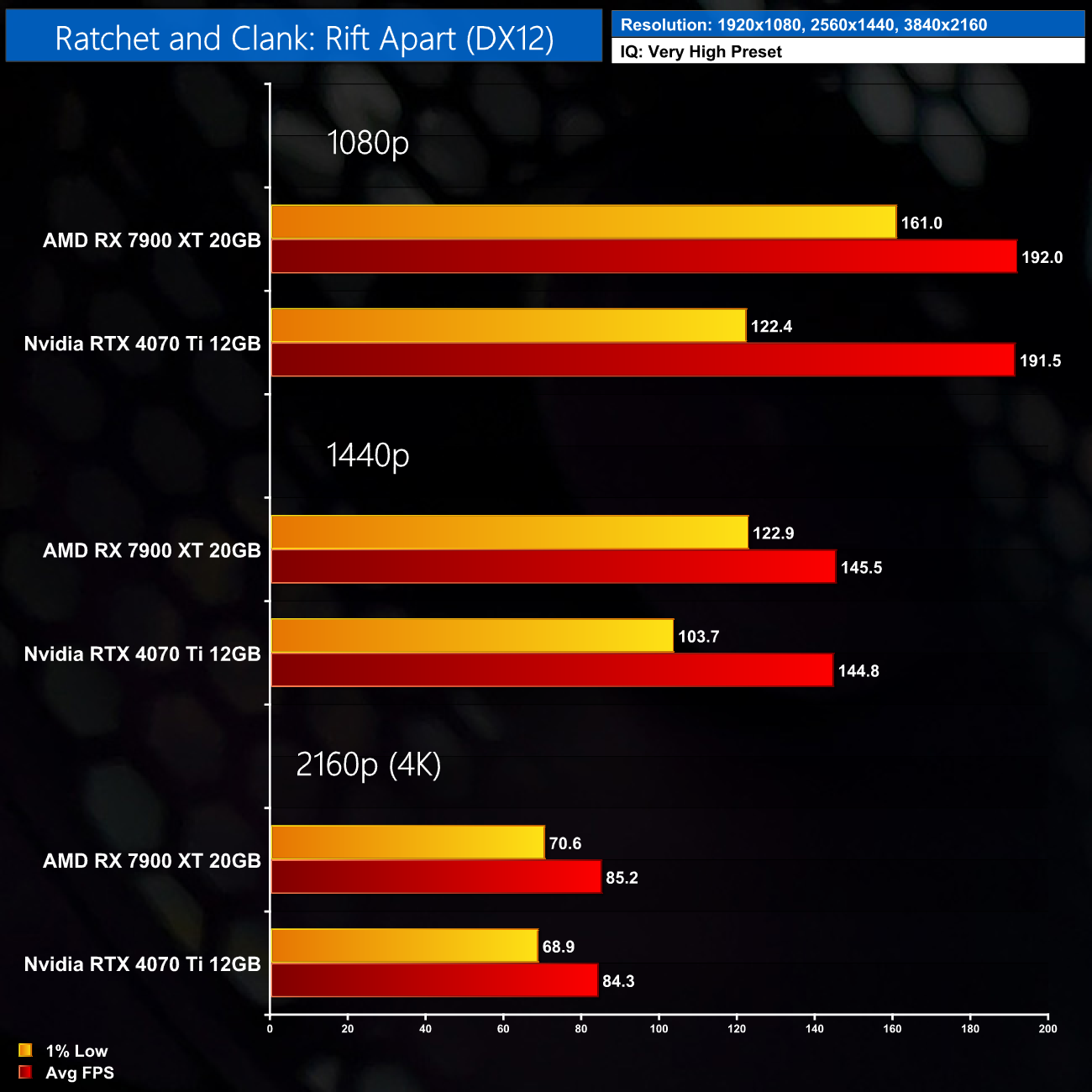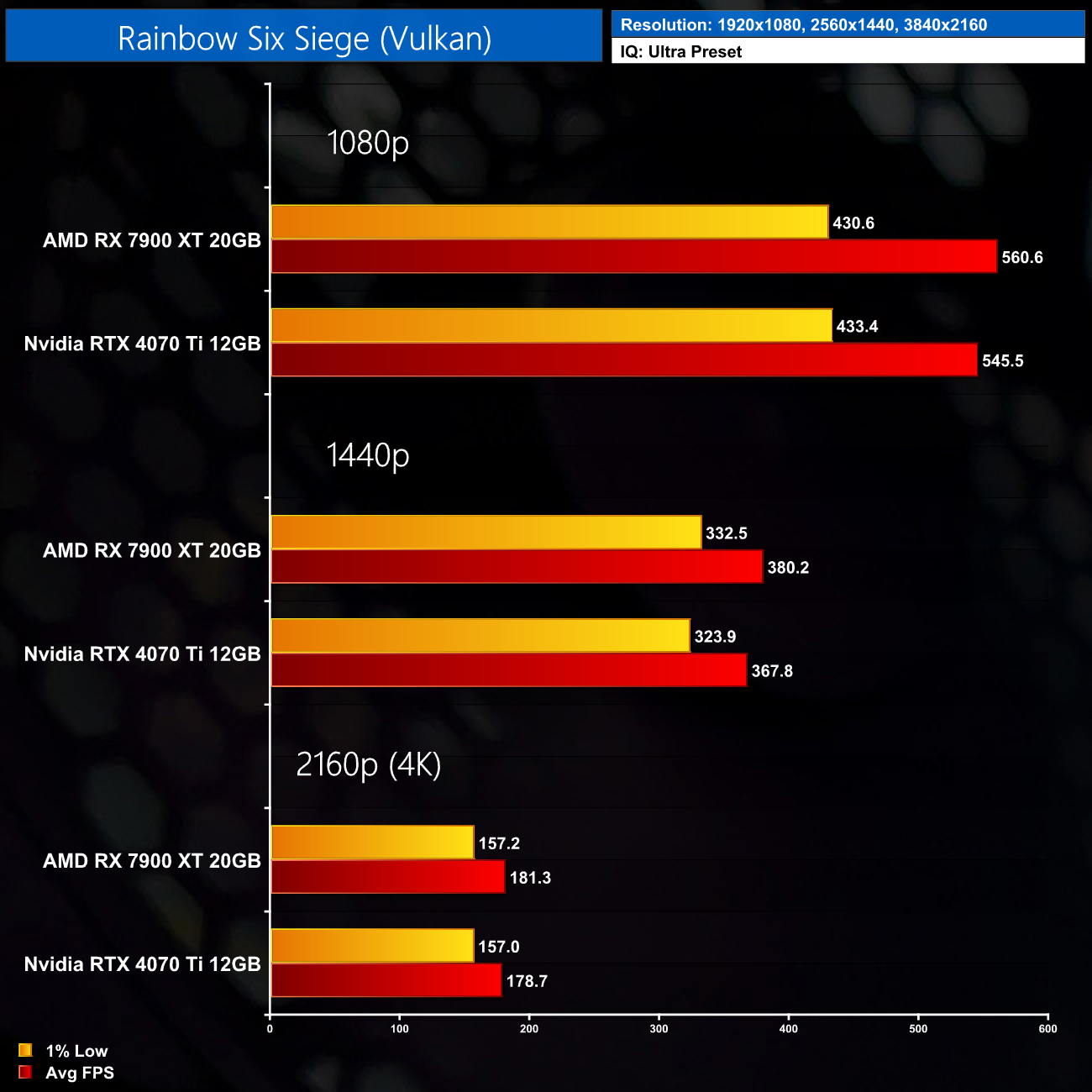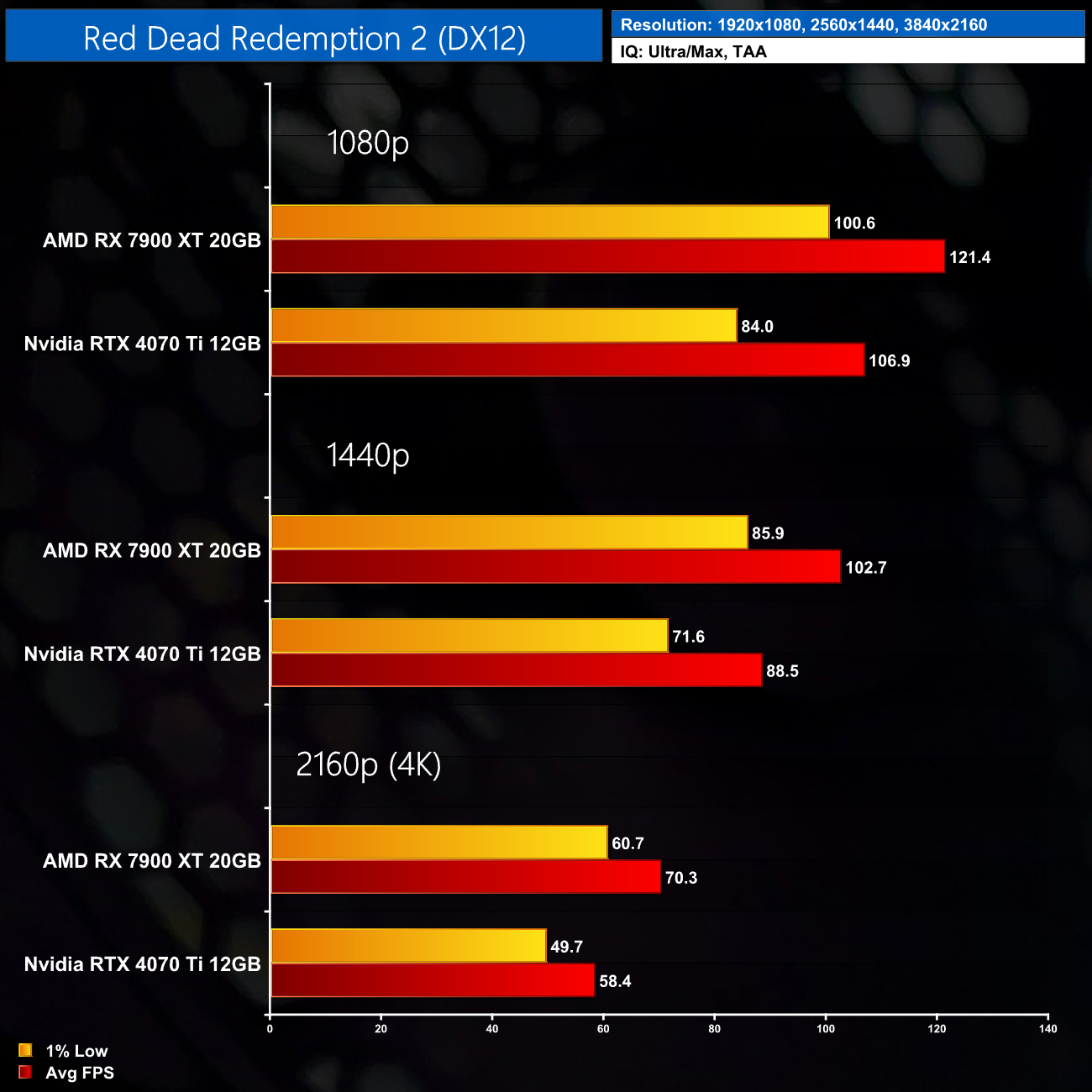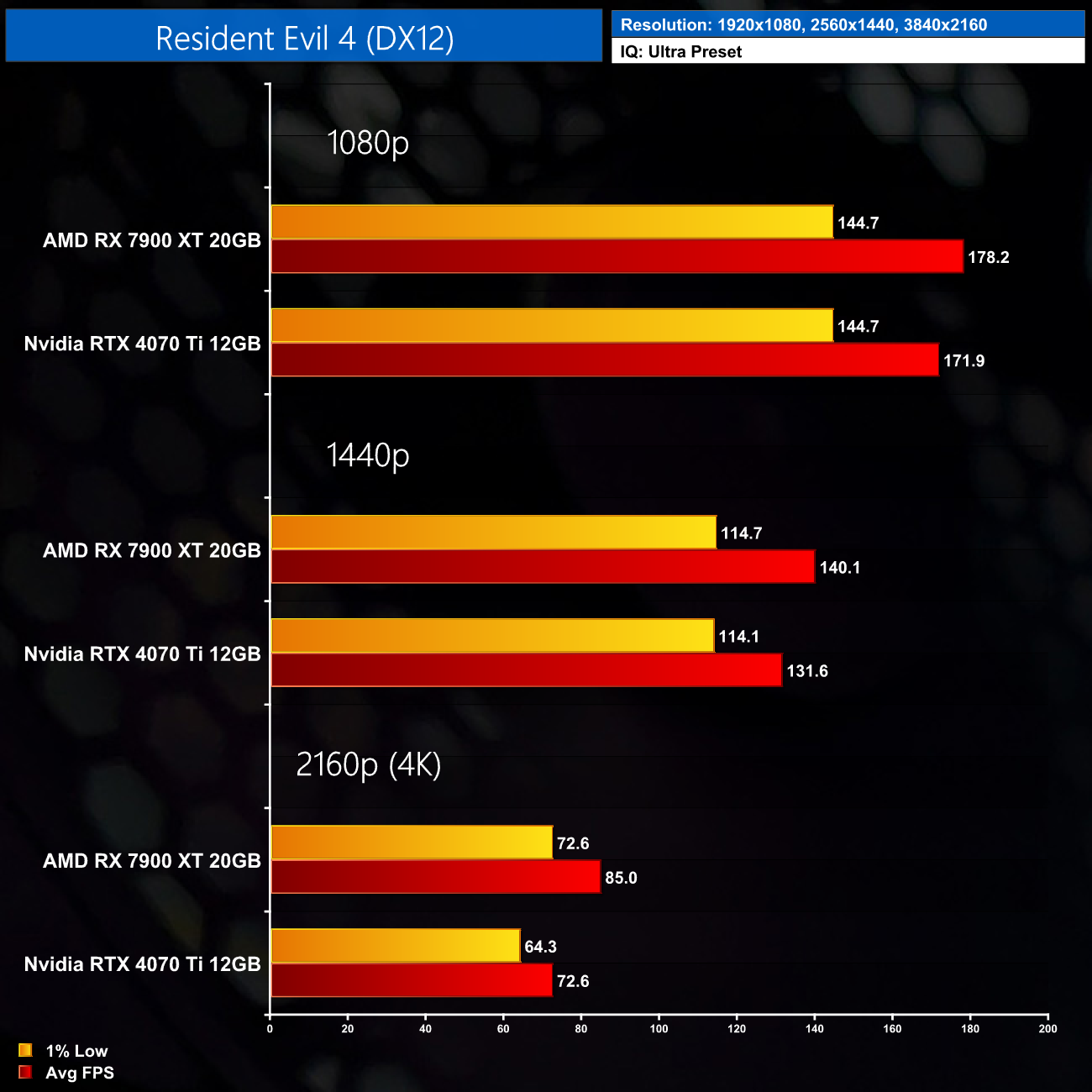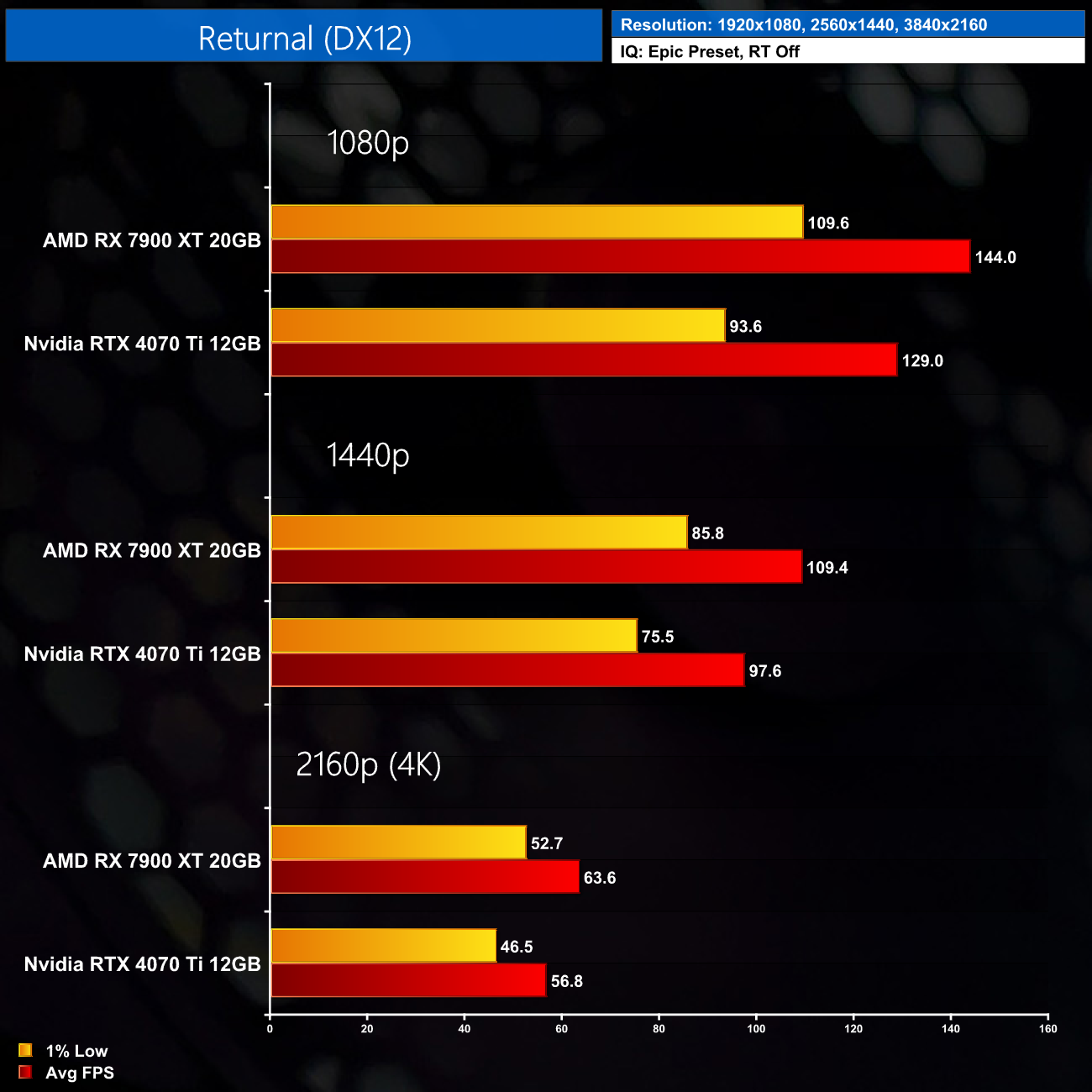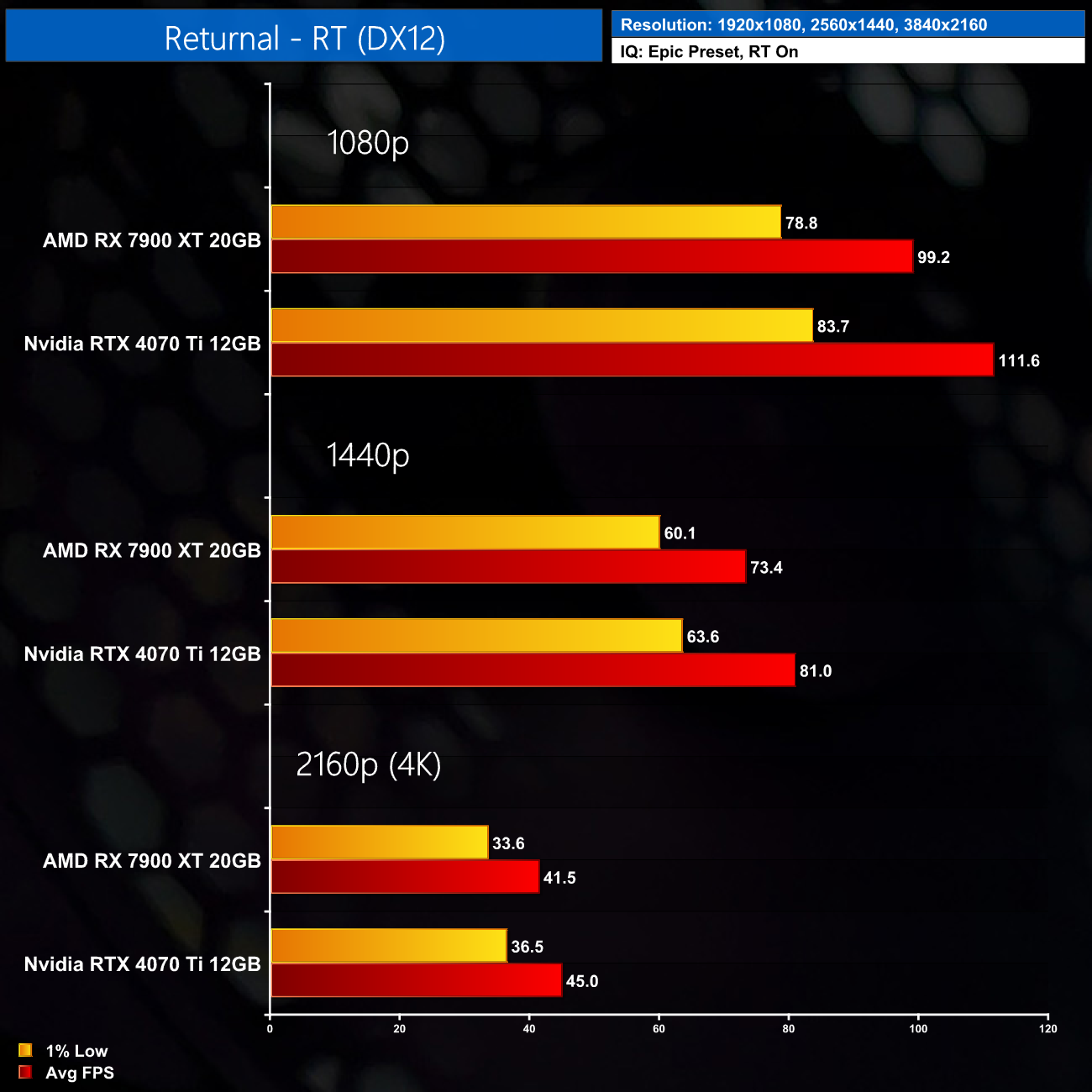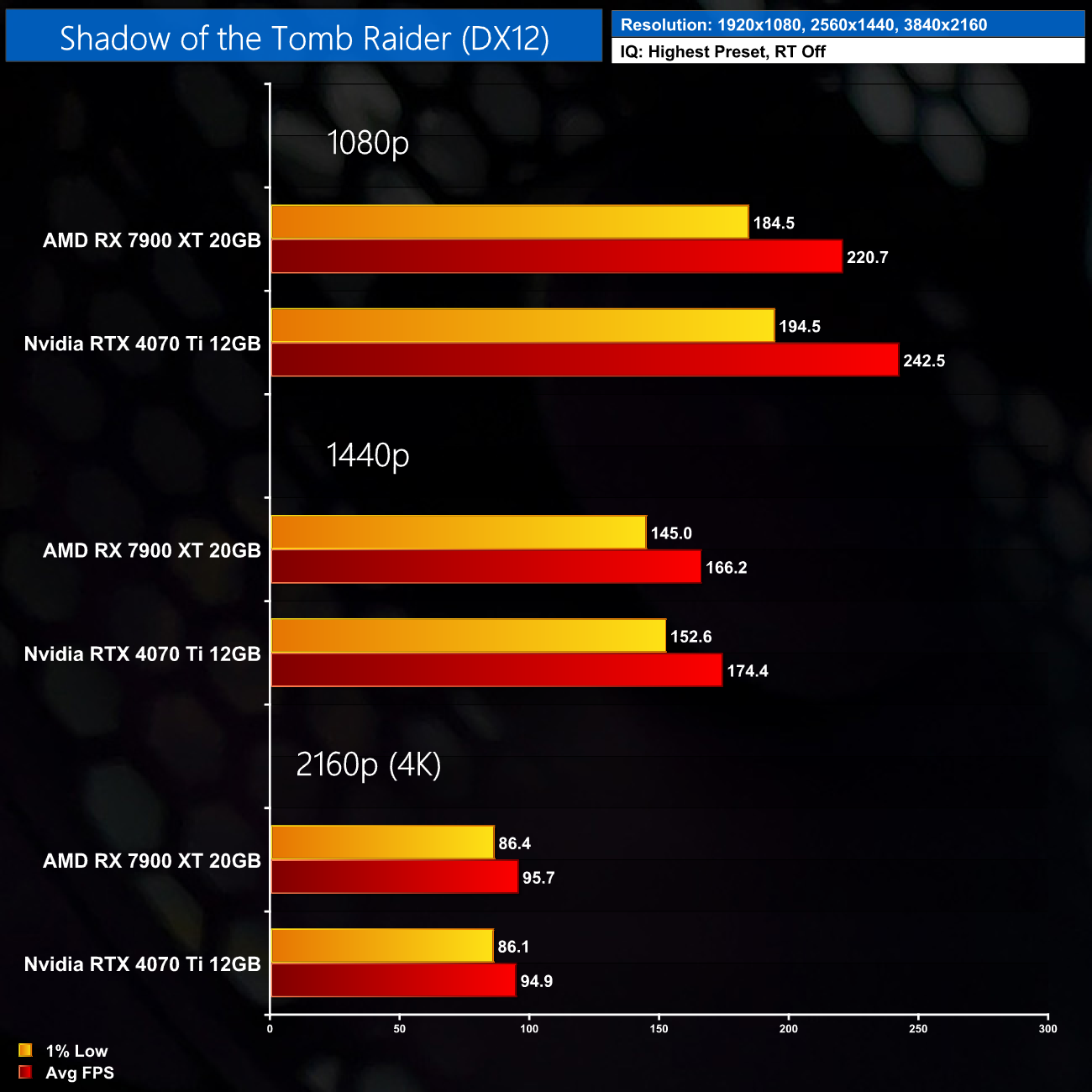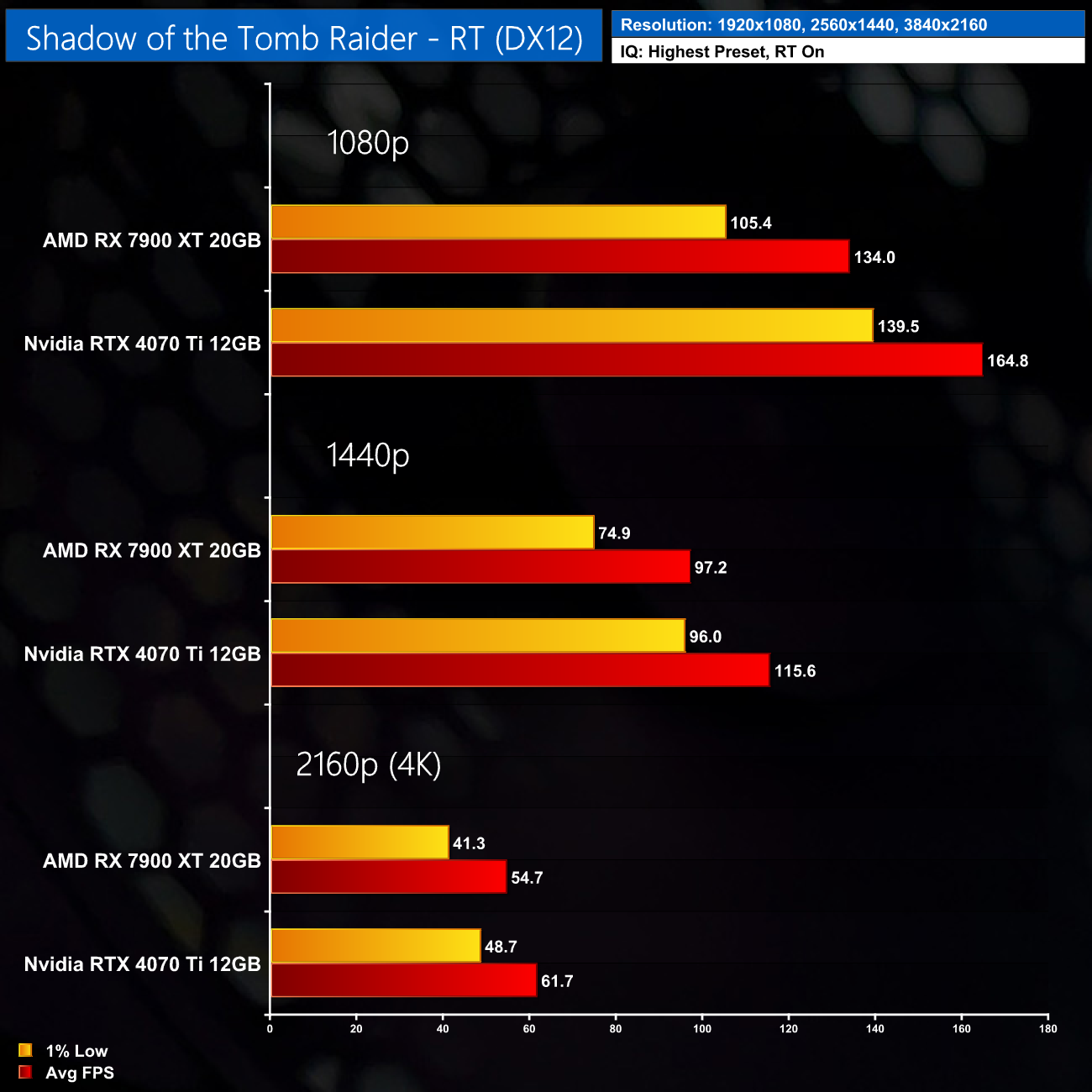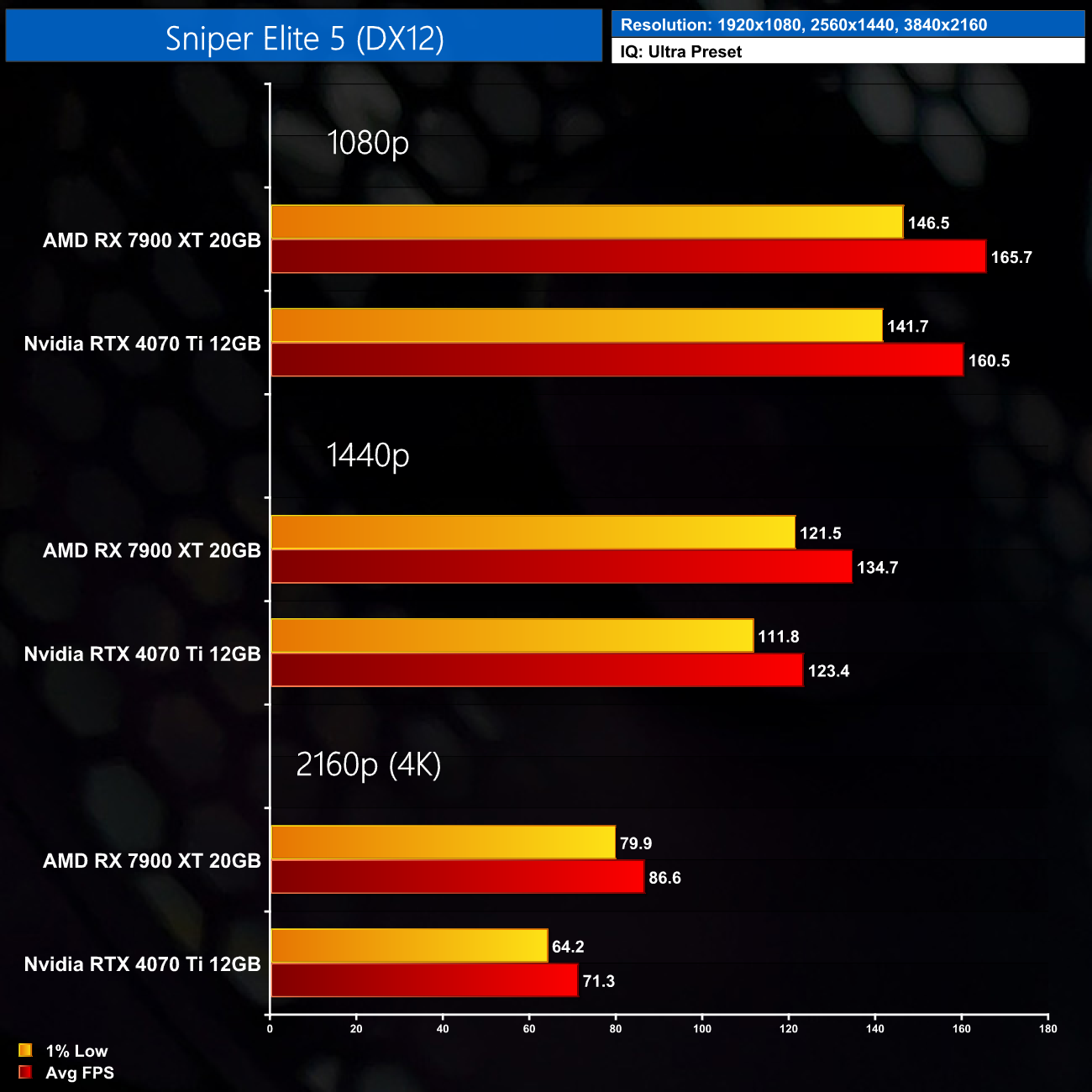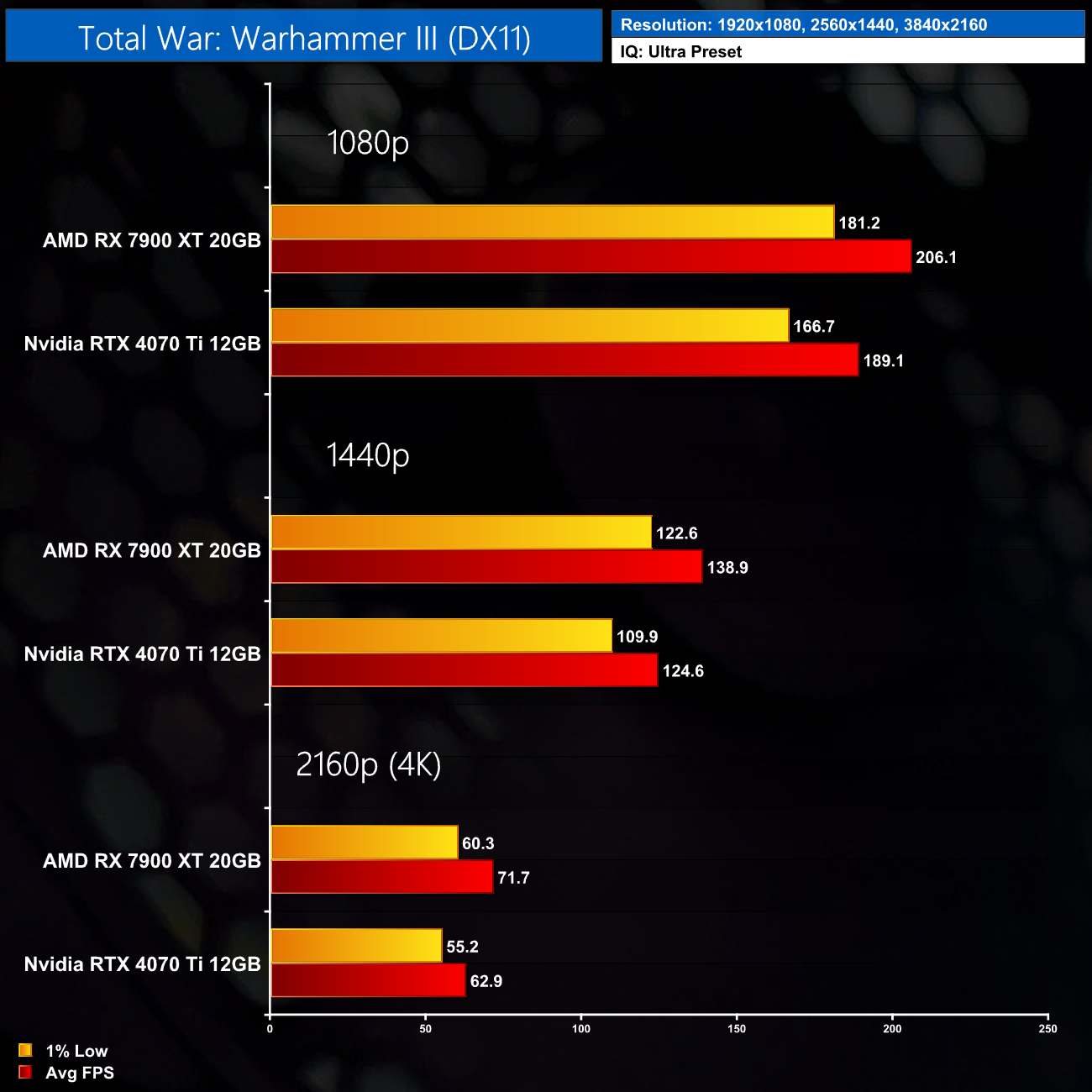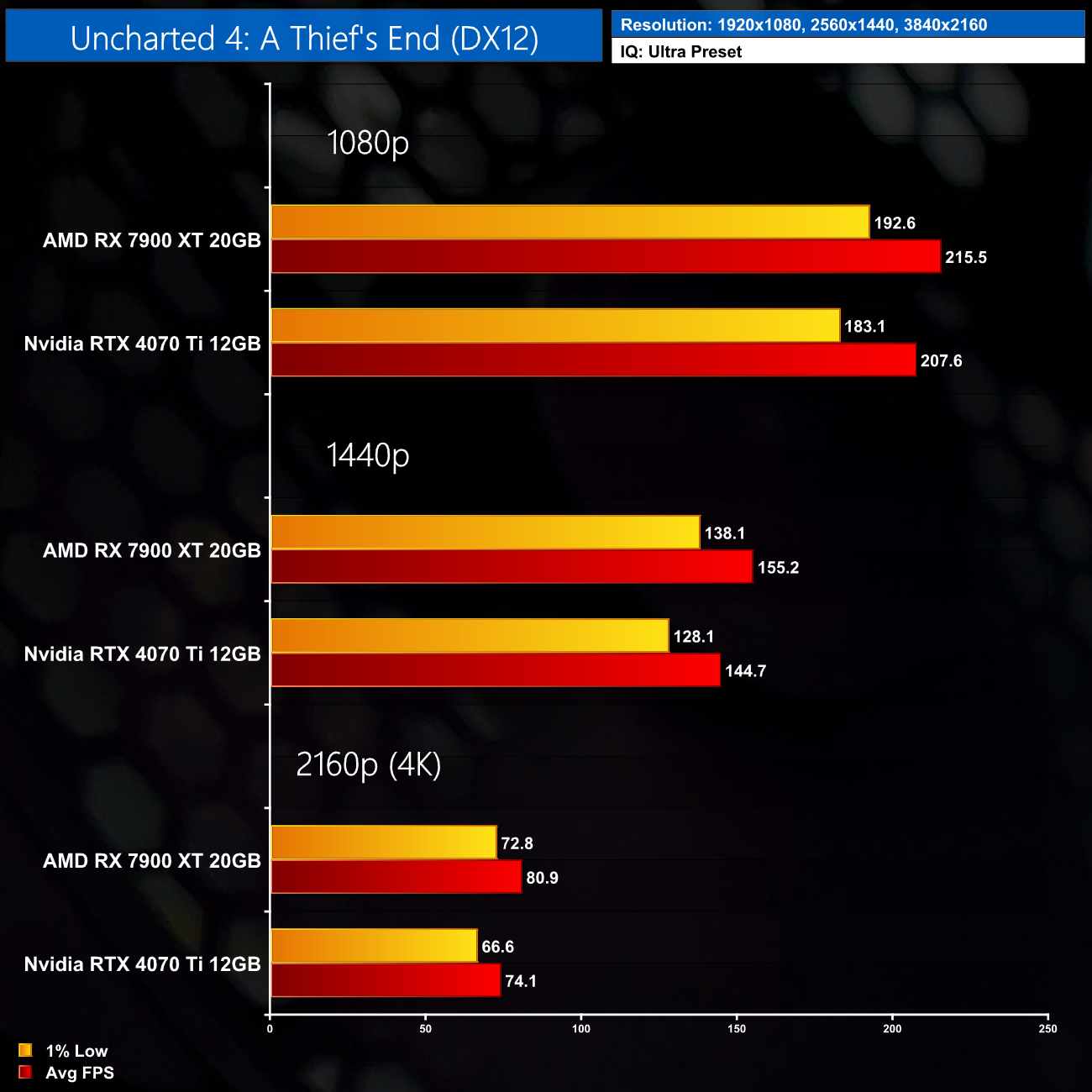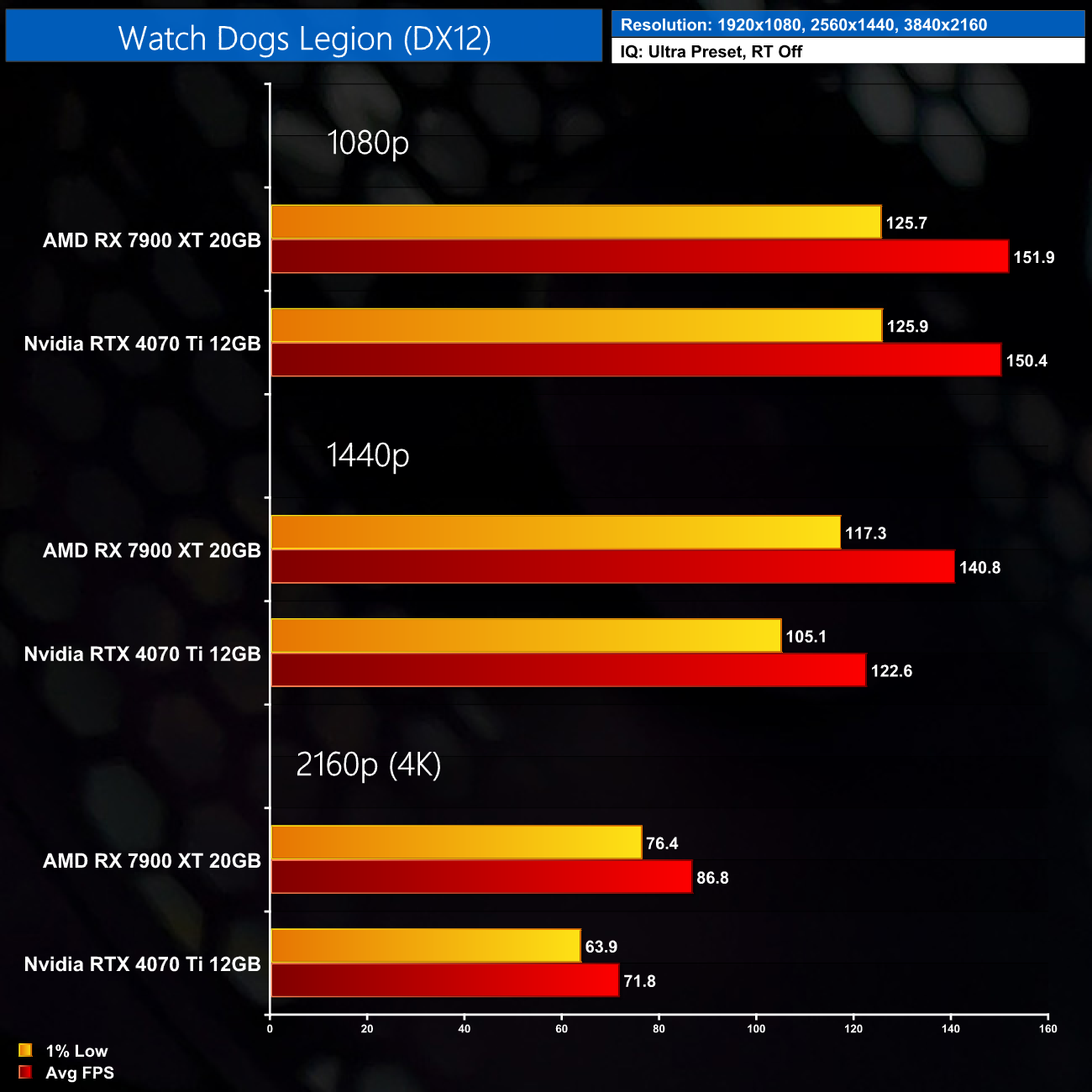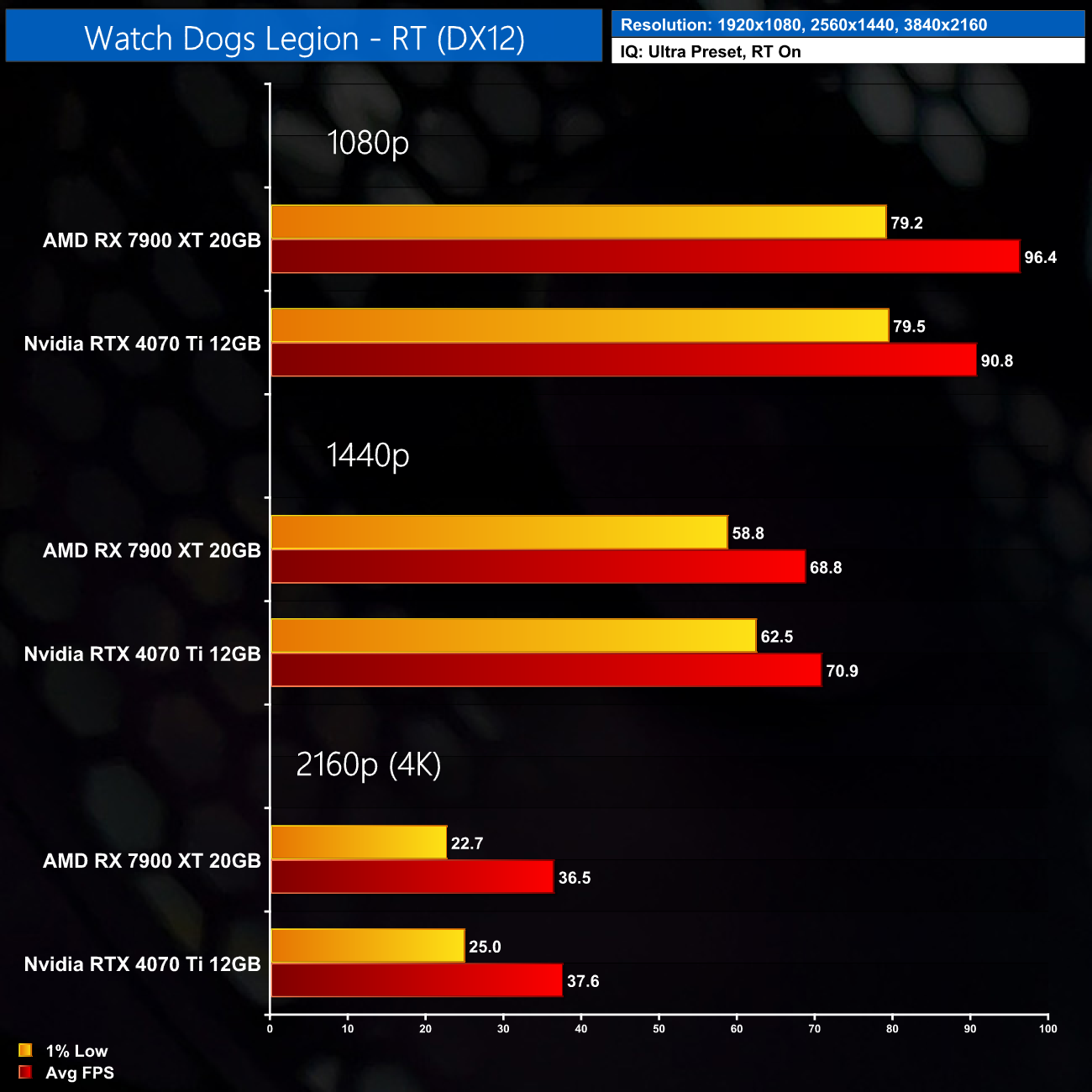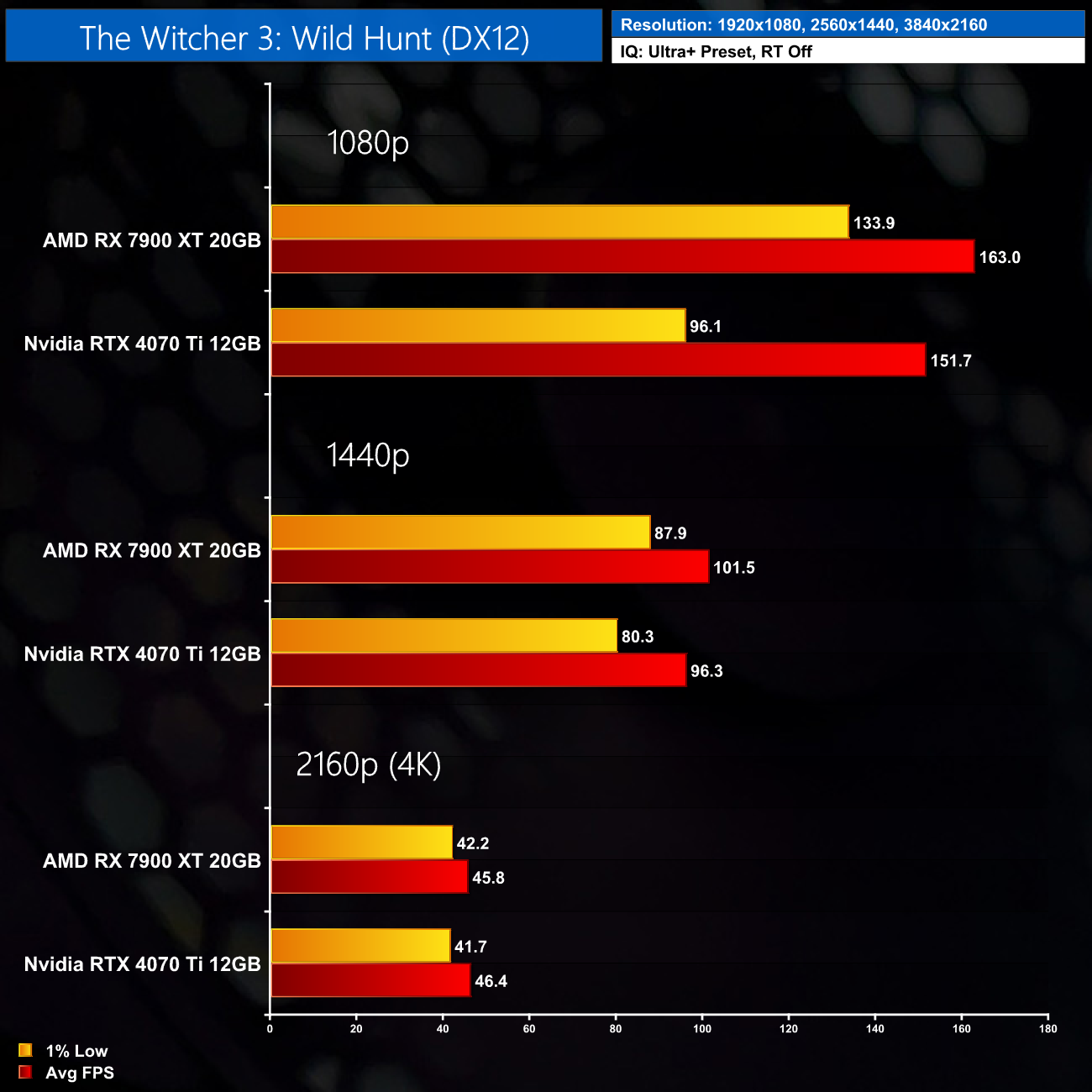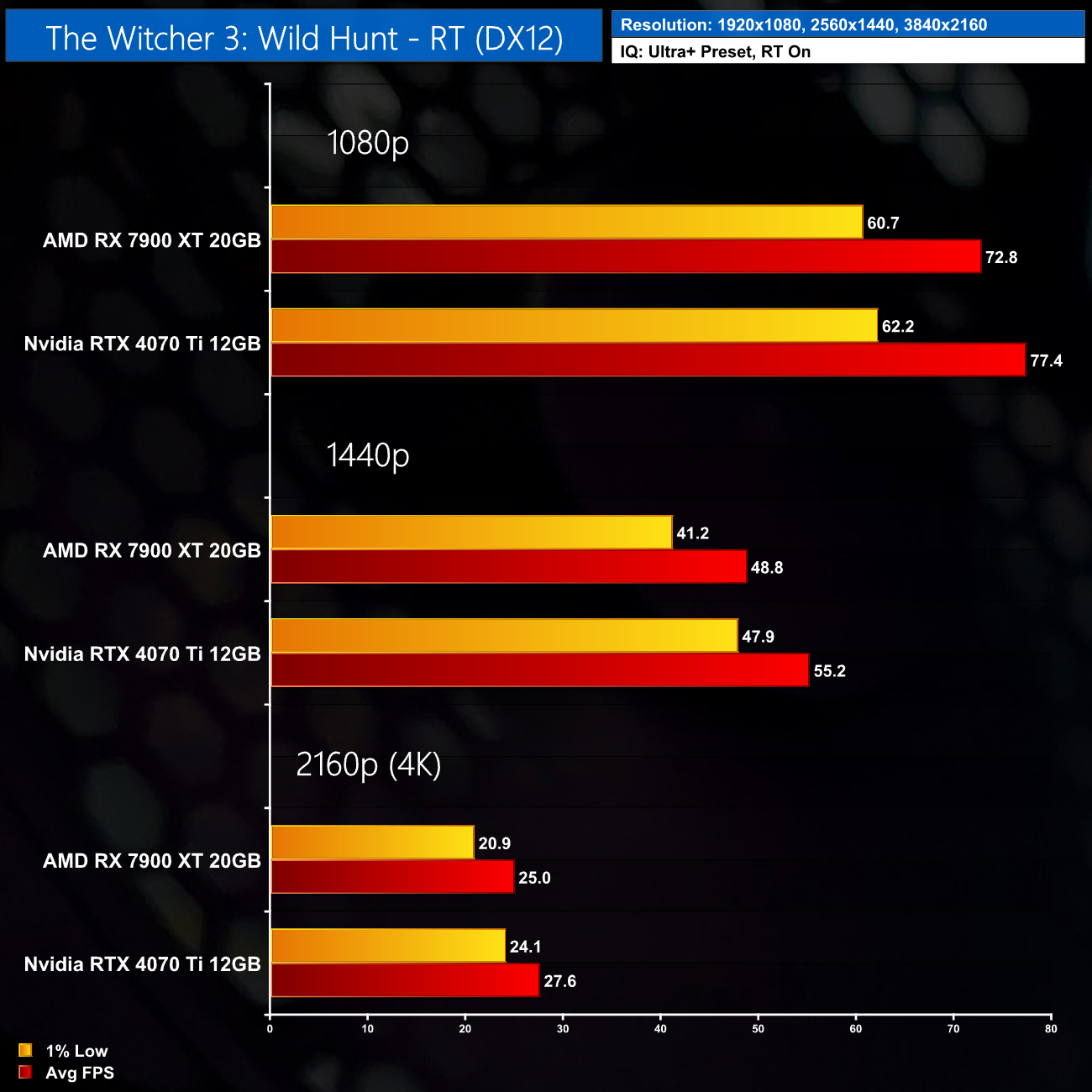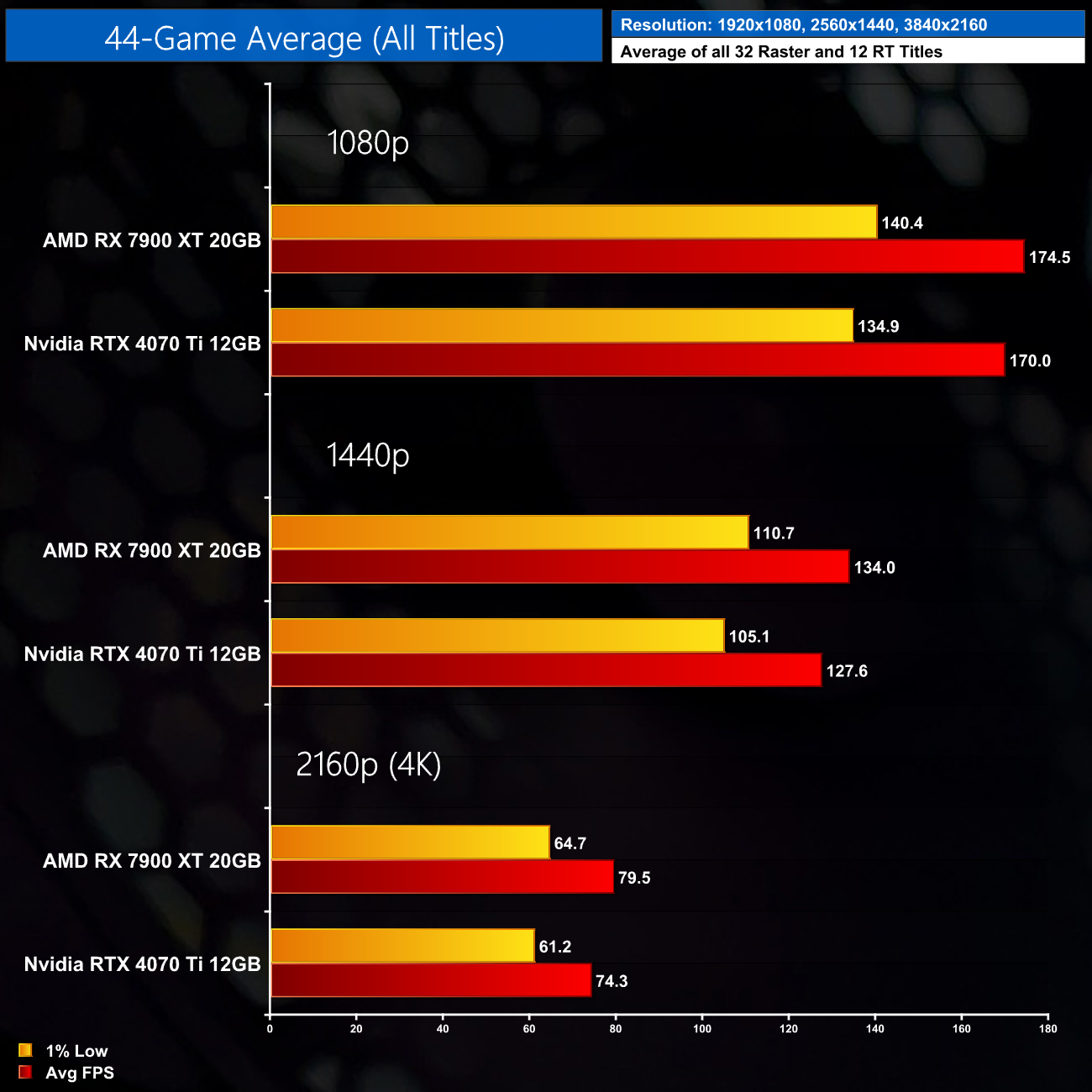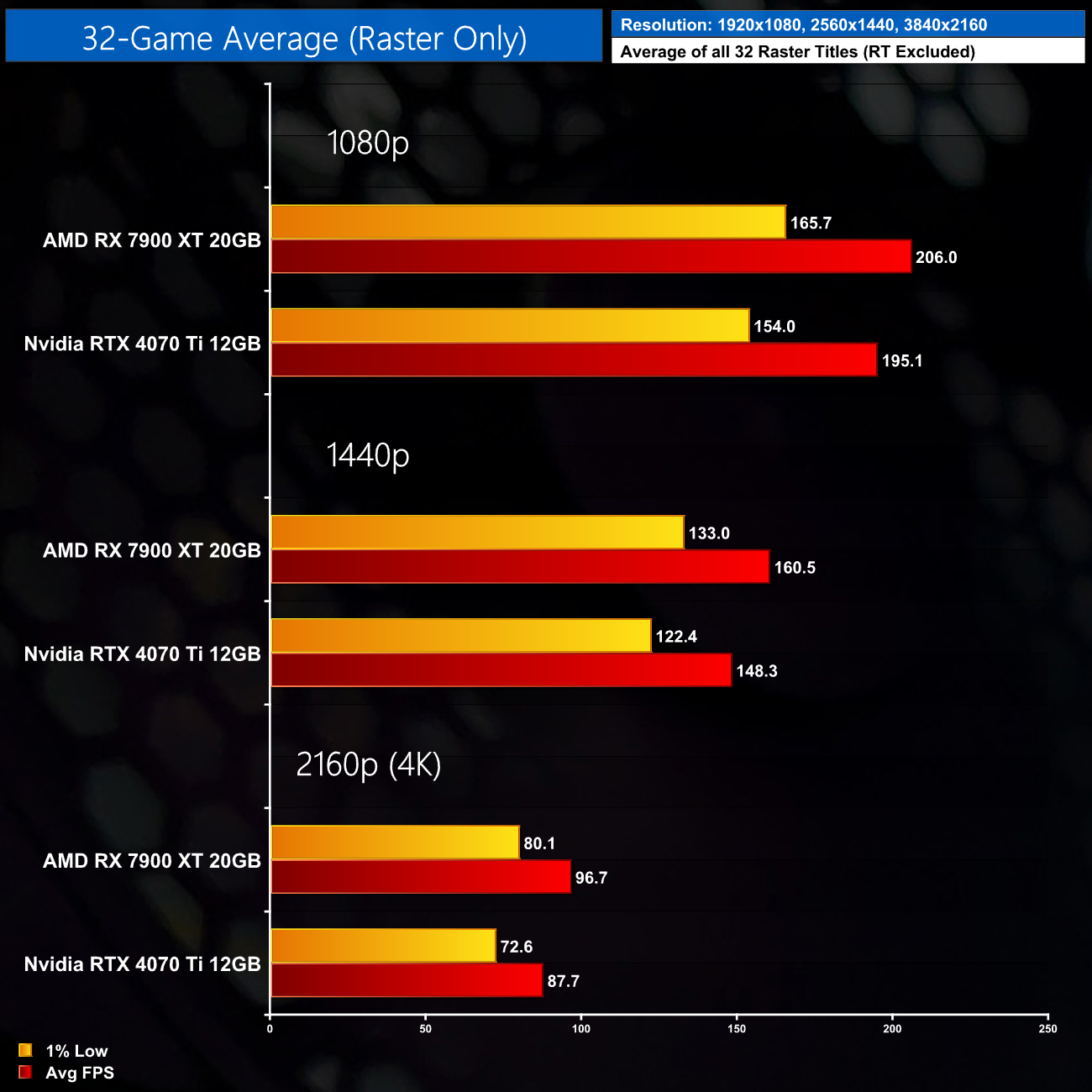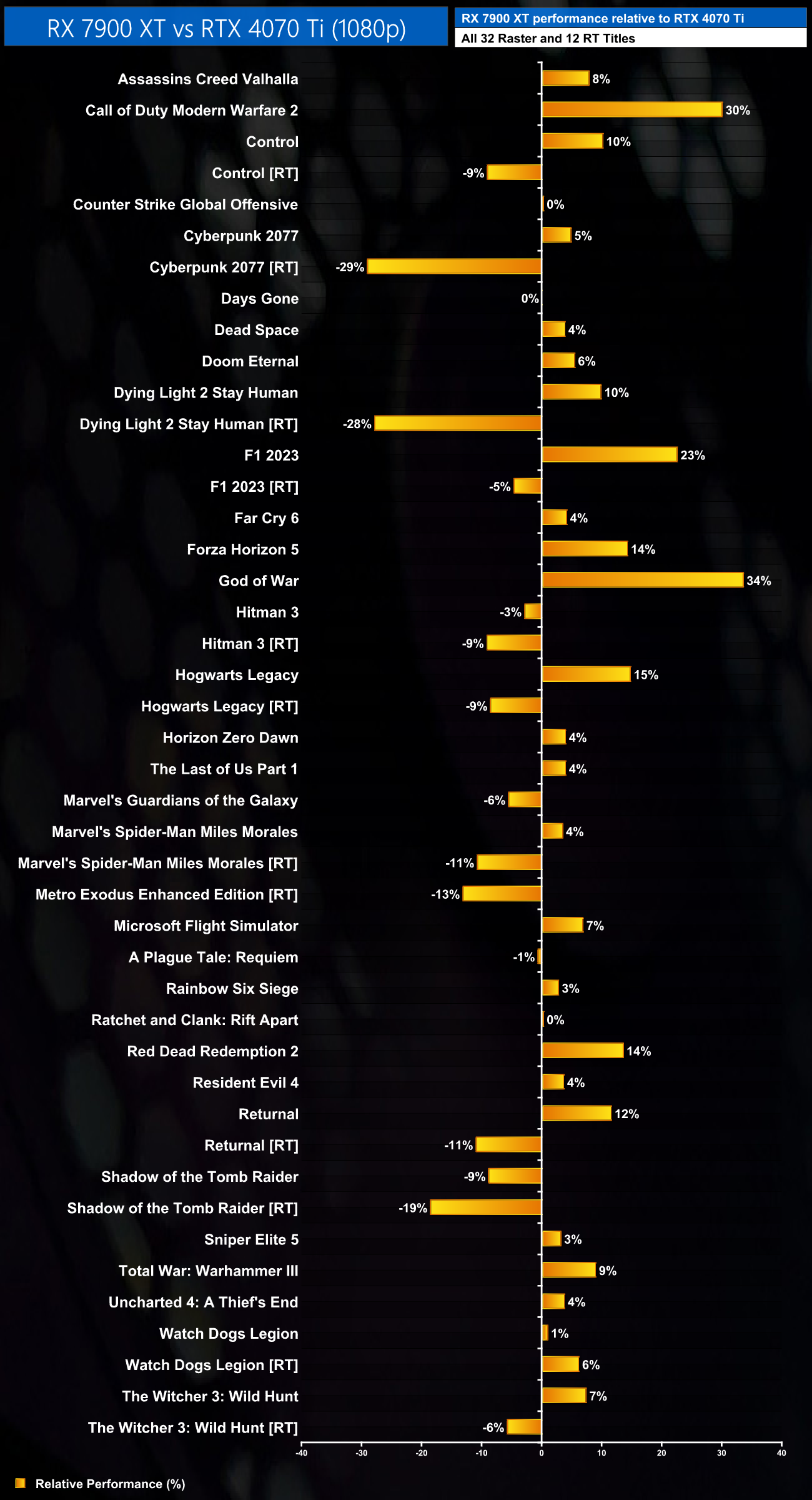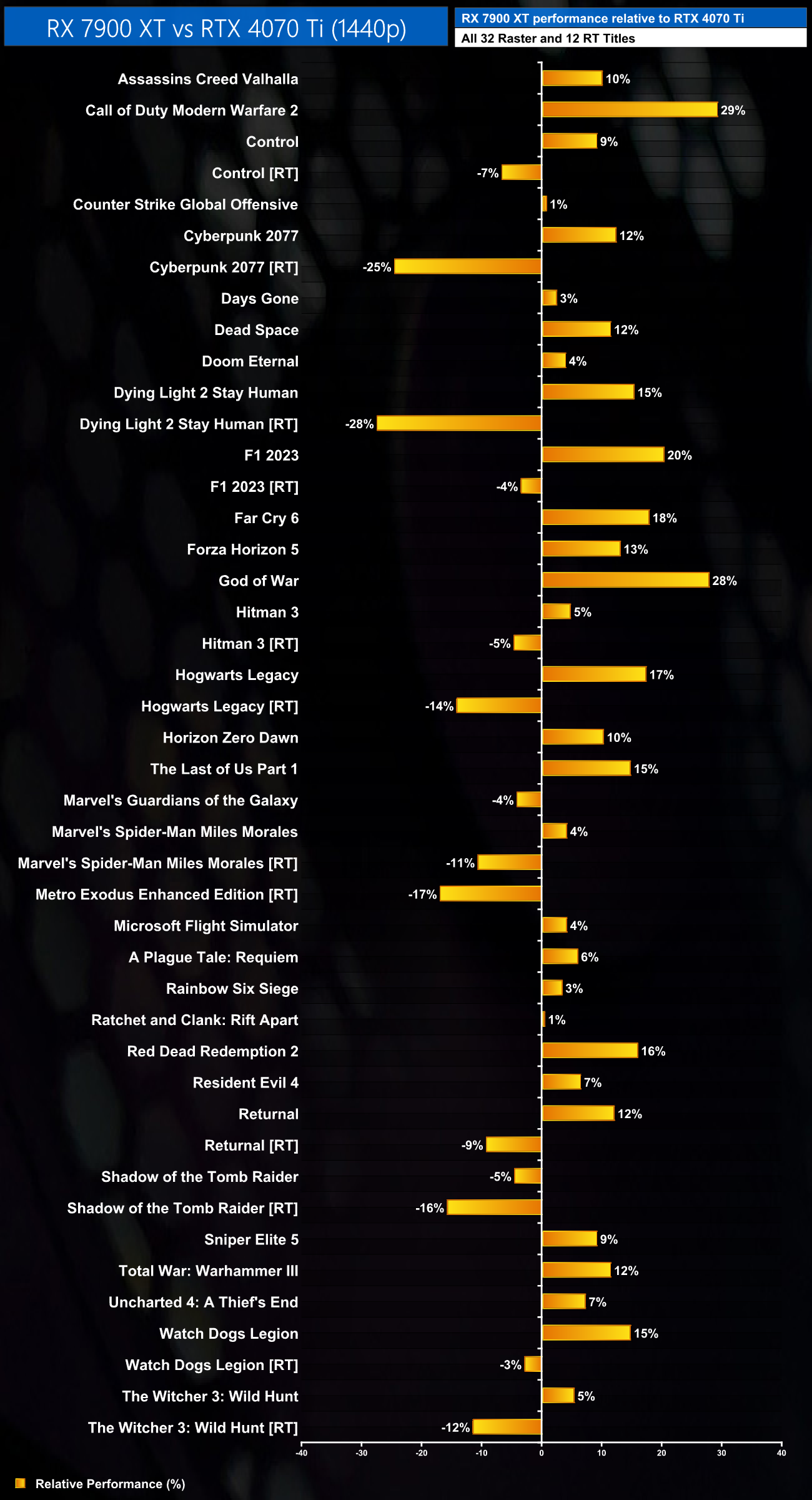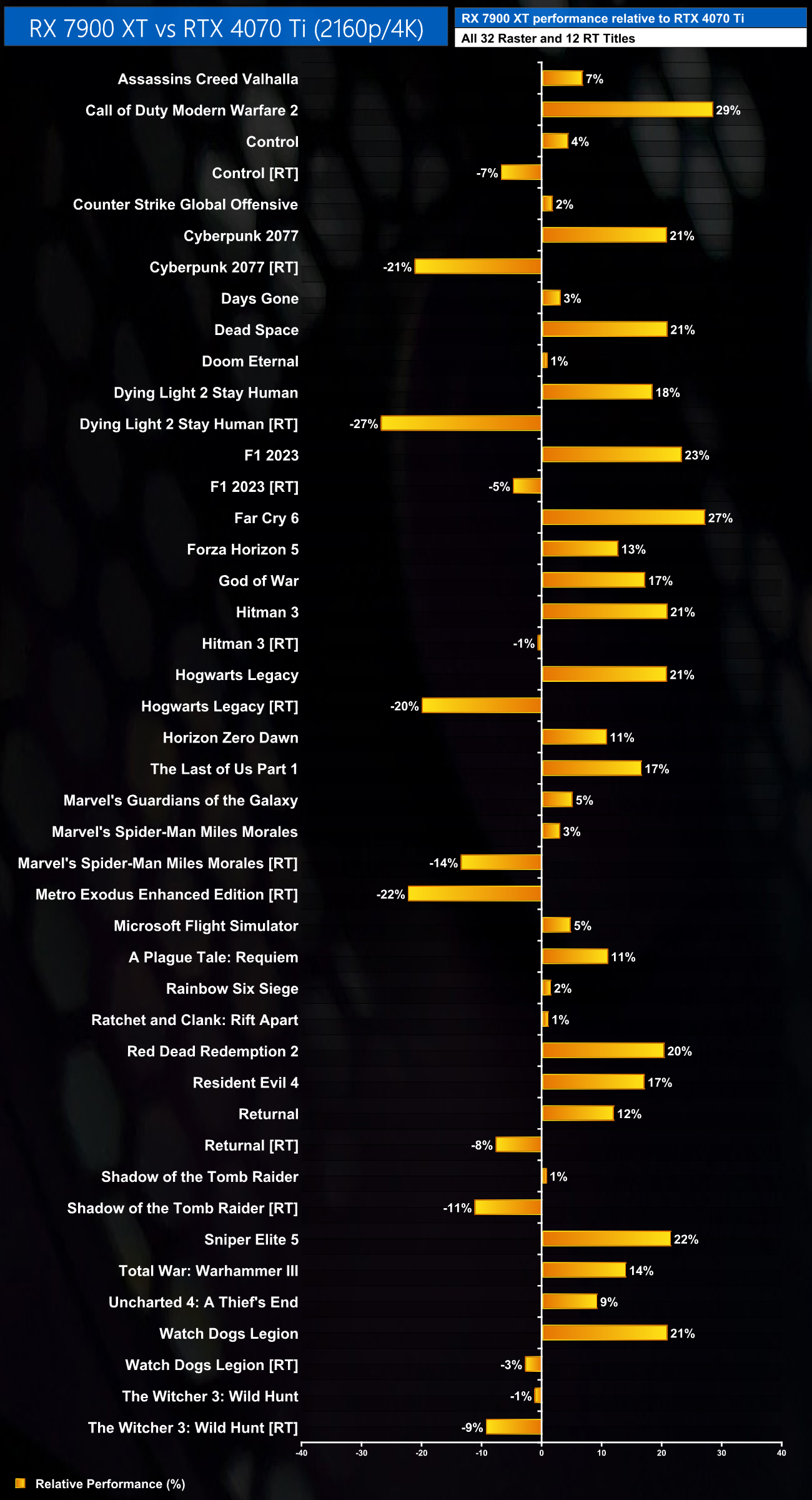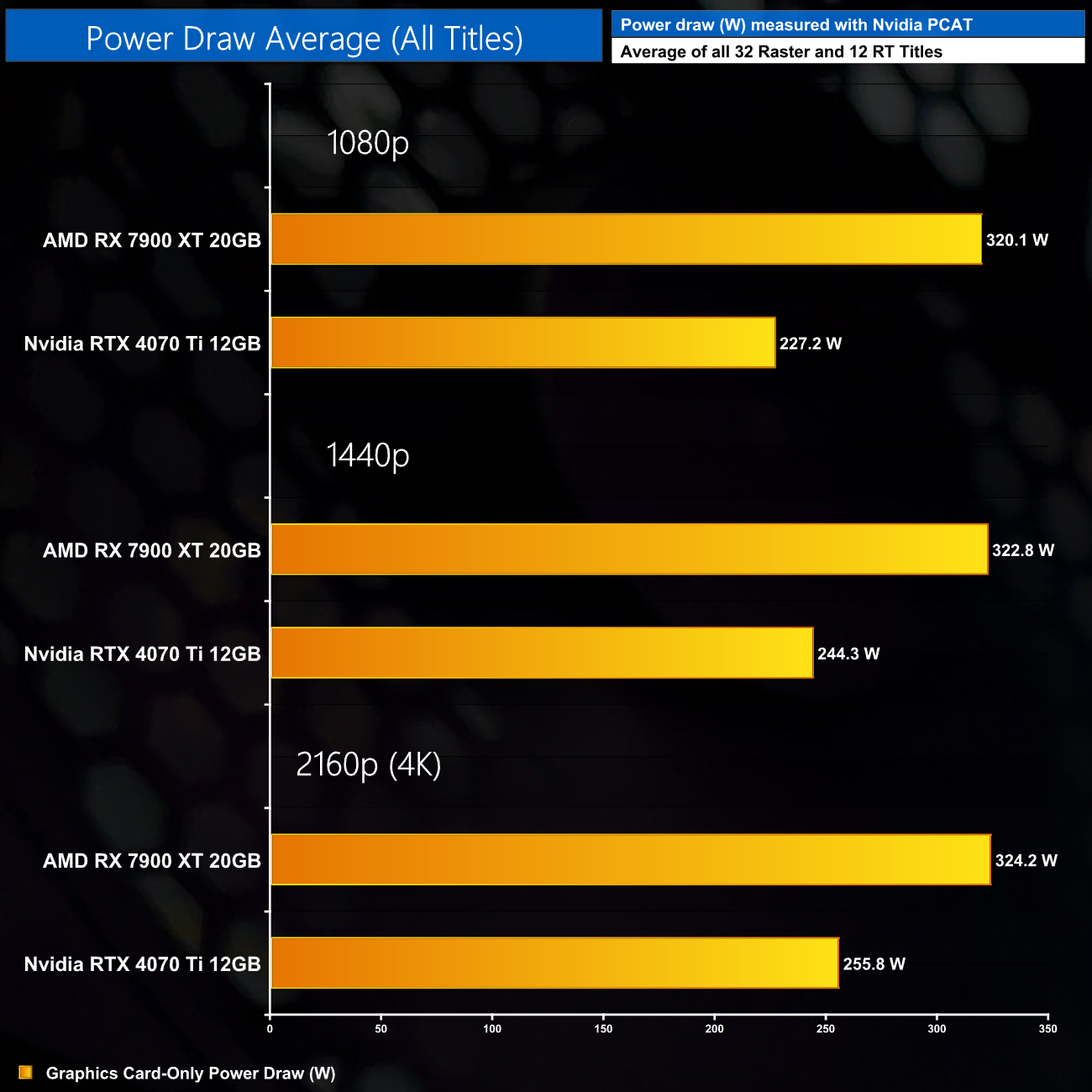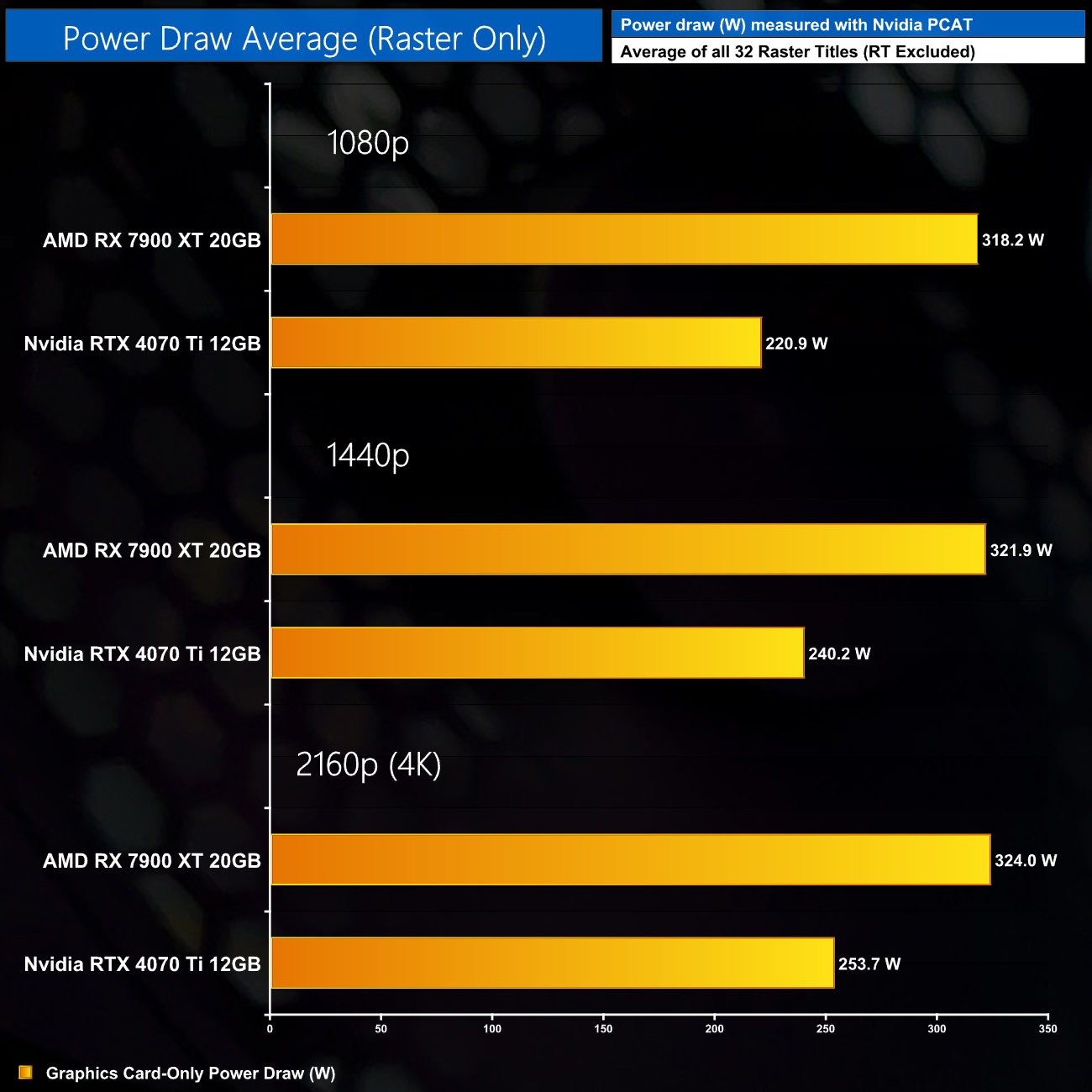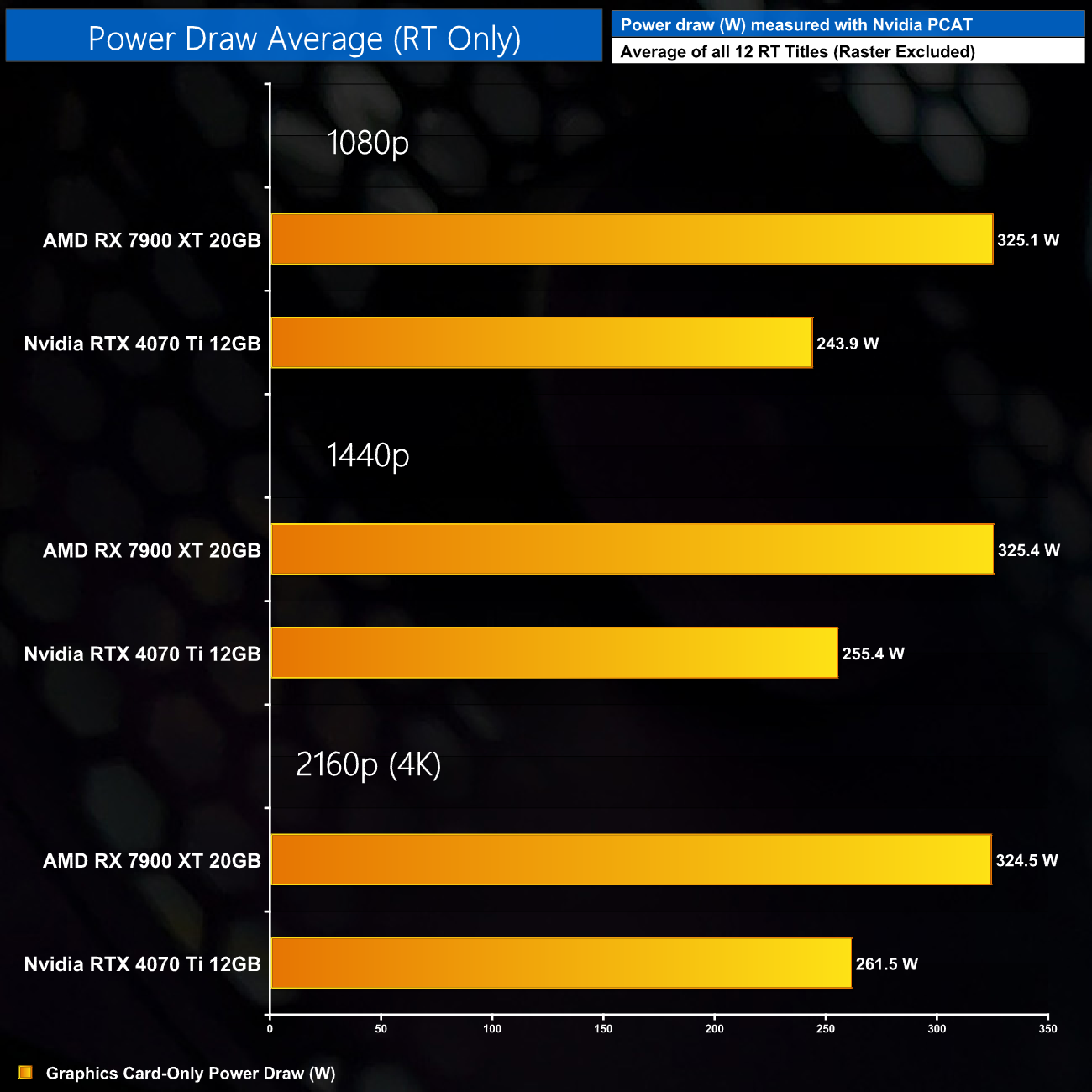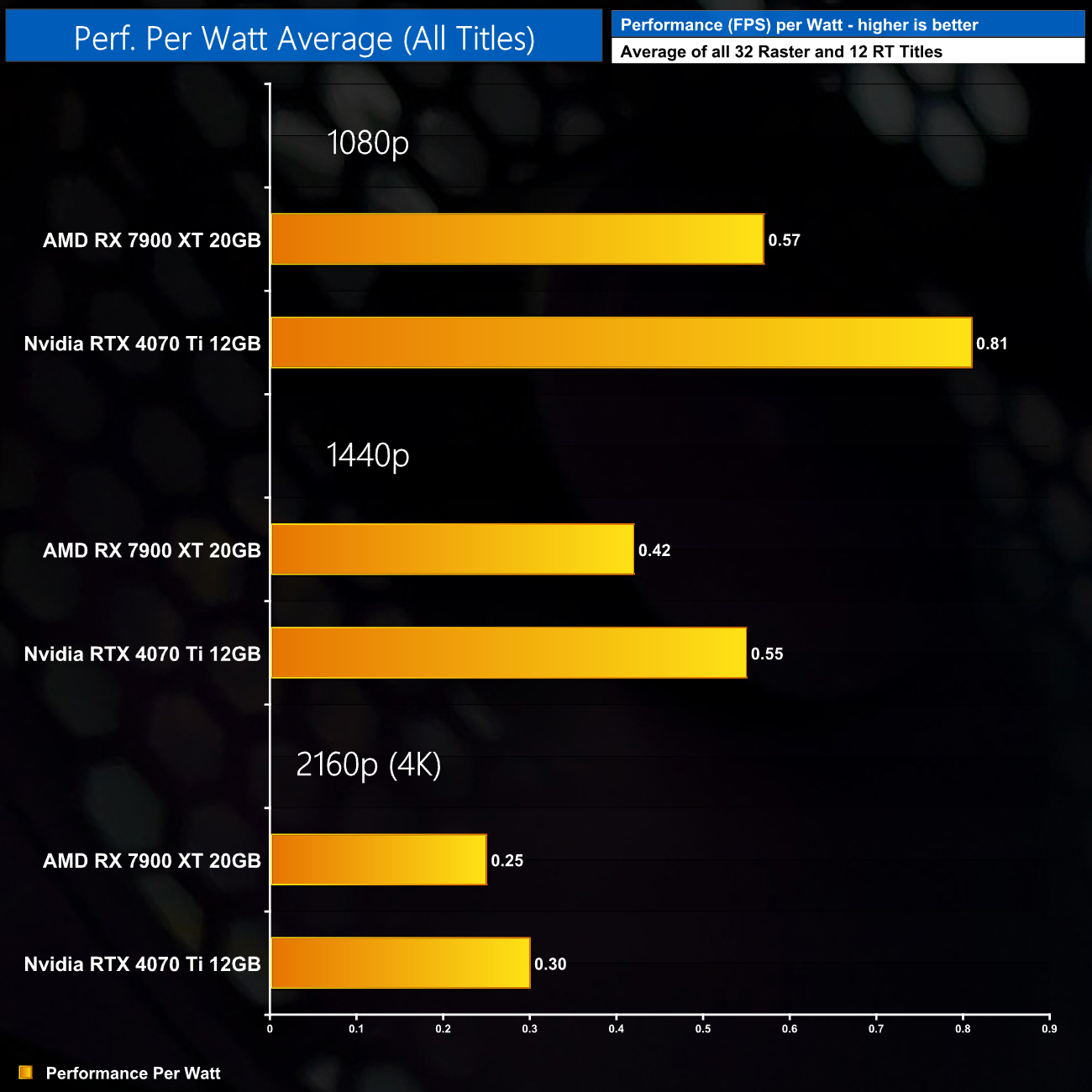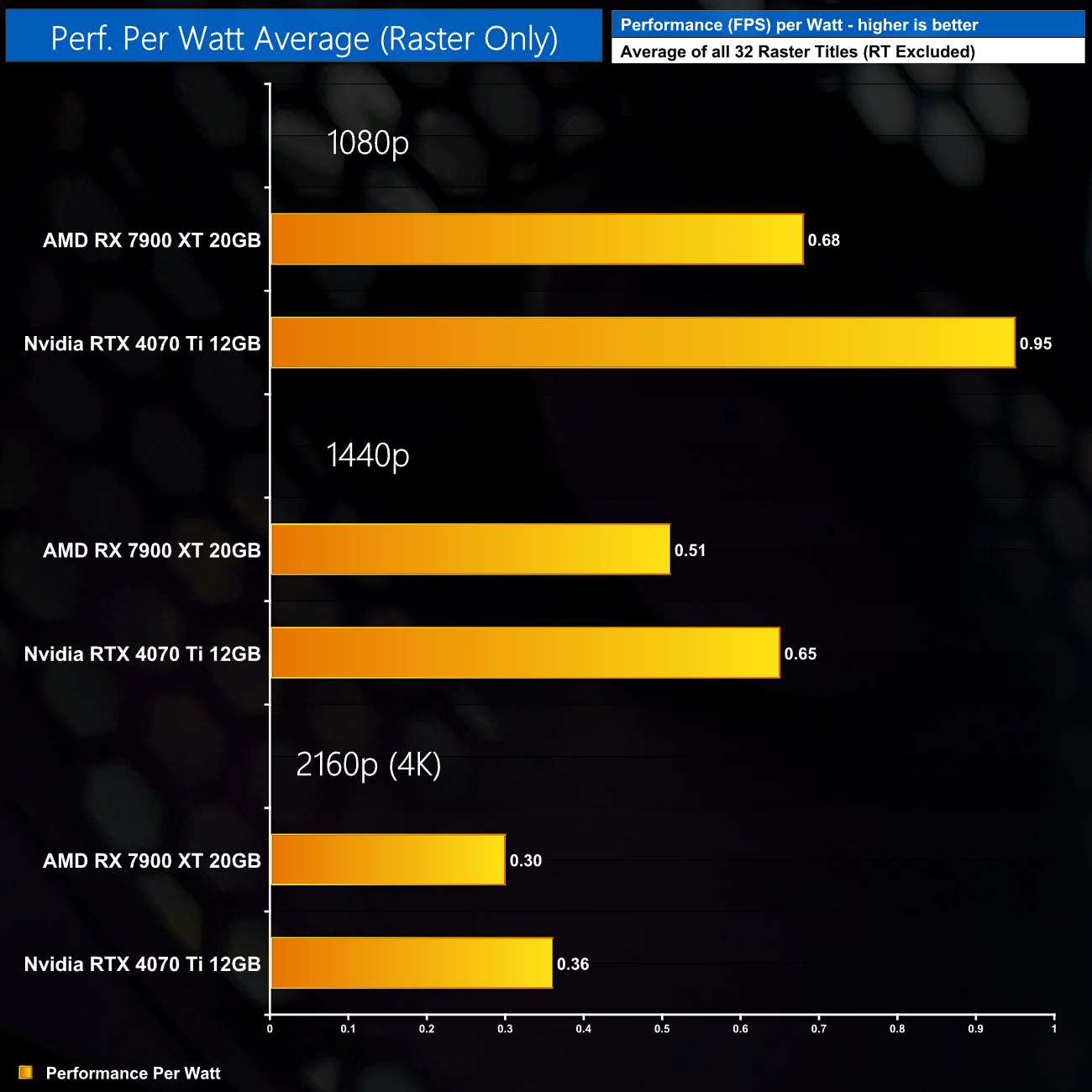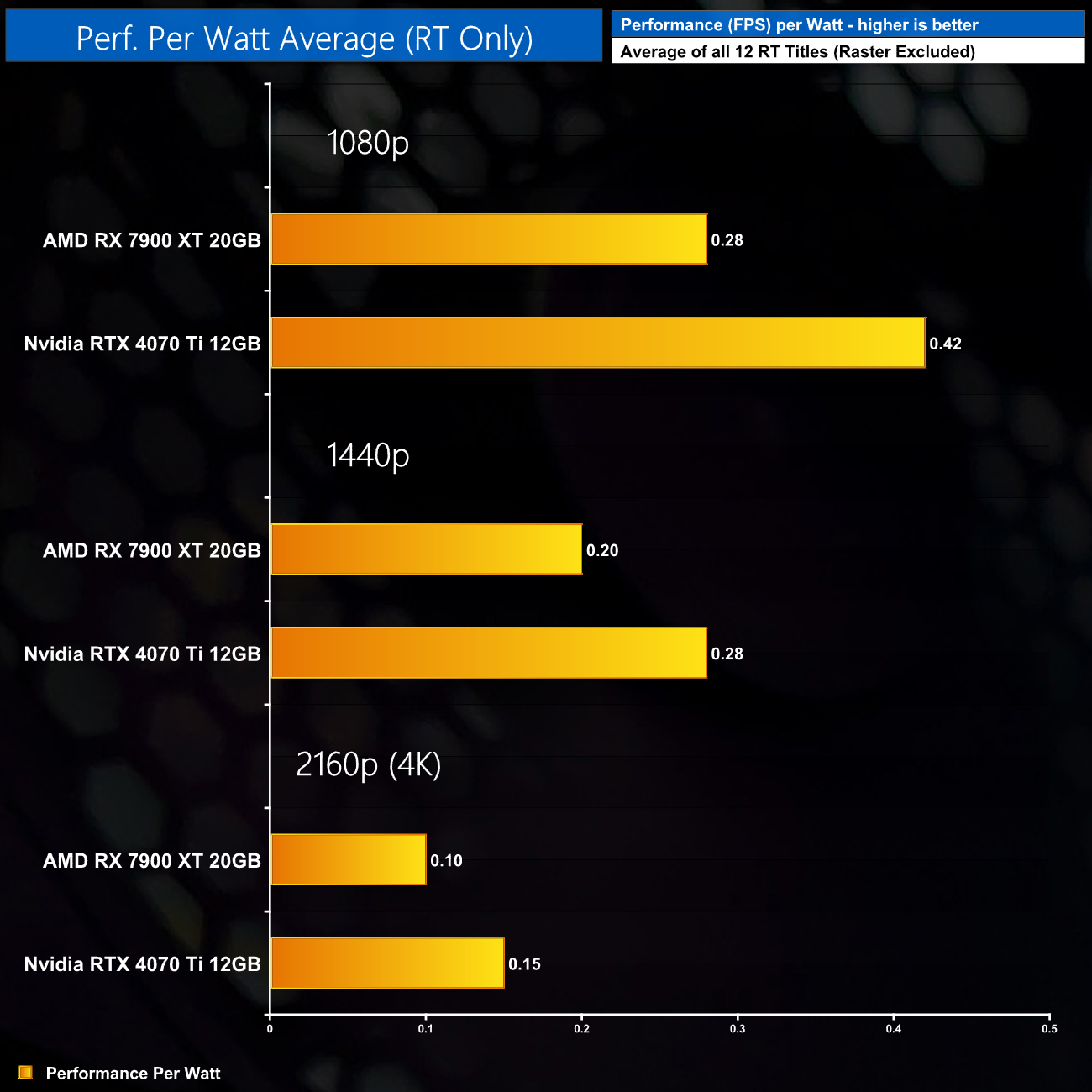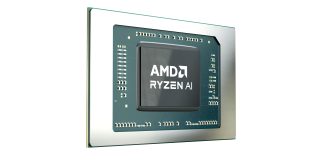Today's investigation has been requested by a number of folks from our Discord server, as we are revisiting the AMD RX 7900 XT. This isn't a ‘re-review' as such, but after significant price cuts, it is high time to see exactly what the RX 7900 XT can bring to the table when put head-to-head against Nvidia’s RTX 4070 Ti in a massive 44-benchmark battle…
When we reviewed the AMD RX 7900 XT, it launched with an MSRP of £899.99 back in December 2022. Things have changed significantly since then however, with the 7900 XT currently retailing for £739.99 at OverclockersUK, and I've even seen it as low as £700. That puts it in a very similar ball park to Nvidia's RTX 4070 Ti, with a £799 MSRP but with models currently starting at £750.
Today, we put these two GPUs head-to-head, with a total of 44 games tested. That includes 32 rasterised titles, but also 12 games with ray tracing enabled so we can assess both sides of the spectrum. For the RX 7900 XT, we have opted to use the Sapphire RX 7900 XT Pulse, while on the Nvidia side we gave gone for Gigabyte's RTX 4070 Ti Gaming OC.
The next four pages will show the results for each of the 44 games tested. You can skip to page 6 for performance breakdown, or to page 7 if you want to know about power draw and efficiency.
Test setup
Driver Notes
- RX 7900 XT was benchmarked with the Adrenalin 23.7.2 driver.
- RTX 4070 Ti was benchmarked with the GeForce 536.99 driver.
Test System:
We test using a custom built system from PCSpecialist, based on Intel’s Rocket Lake platform. You can read more about this system HERE and configure your own PCSpecialist system HERE.
| CPU |
Intel Core i9-13900KS
|
| Motherboard |
Gigabyte Z790 Gaming X AX
|
| Memory |
32GB (2x16GB) Corsair Dominator Platinum RGB DDR5 6000MHz
|
| Graphics Card |
Varies
|
| SSD |
4TB Seagate Firecuda 530 Gen 4 PCIe NVMe
|
| Chassis | Corsair 5000D Airflow Tempered Glass Gaming Case |
| CPU Cooler |
Corsair iCUE H150i Elite RGB High Performance CPU Cooler
|
| Power Supply |
Corsair 1600W Pro Series Titanium AX1600i Digital Modular PSU
|
| Operating System |
Windows 11 22H2
|
| Monitor |
MSI Optix MPG321UR-QD
|
| Resizable BAR |
Enabled for all supported GPUs
|
Games Tested:
- Assassins Creed Valhalla
- Call of Duty Modern Warfare 2
- Control
- Control [RT]
- Counter Strike Global Offensive
- Cyberpunk 2077
- Cyberpunk 2077 [RT]
- Days Gone
- Dead Space
- Doom Eternal
- Dying Light 2 Stay Human
- Dying Light 2 Stay Human [RT]
- F1 2023
- F1 2023 [RT]
- Far Cry 6
- Forza Horizon 5
- God of War
- Hitman 3
- Hitman 3 [RT]
- Hogwarts Legacy
- Hogwarts Legacy [RT]
- Horizon Zero Dawn
- The Last of Us Part 1
- Marvel's Guardians of the Galaxy
- Marvel's Spider-Man Miles Morales
- Marvel's Spider-Man Miles Morales [RT]
- Metro Exodus Enhanced Edition [RT]
- Microsoft Flight Simulator
- A Plague Tale: Requiem
- Rainbow Six Siege
- Ratchet and Clank: Rift Apart
- Red Dead Redemption 2
- Resident Evil 4
- Returnal
- Returnal [RT]
- Shadow of the Tomb Raider
- Shadow of the Tomb Raider [RT]
- Sniper Elite 5
- Total War: Warhammer III
- Uncharted 4: A Thief's End
- Watch Dogs Legion
- Watch Dogs Legion [RT]
- The Witcher 3: Wild Hunt
- The Witcher 3: Wild Hunt [RT]
Average results
The preceding four pages of this article show each and every one of the 44 games tested, but for an easily-digestable performance summary we have compiled the above charts. What we can see may surprise you, but things are very close indeed between the RX 7900 XT and RTX 4070 Ti over those 44 games. At 1440p, the 7900 XT comes in just 5% faster on average, and 4K that margin is only 7% in favour of the Radeon GPU.
What’s interesting is that if we remove the 12 ray traced games from the results, and only look at the average of the 32 rasterised titles, the margins do improve slightly for the 7900 XT, but not massively. From being 5% faster before at 1440p, it’s now 8% faster when we take ray tracing out of the equation. Likewise at 4K, it was 7% faster before, and now it’s 10% faster. It’s certainly something, but I’d actually say the margins aren’t quite as large as I might have thought after all that testing.
Just for interest as well, if we only look at the 12 games that we tested with ray tracing enabled, the 7900 XT comes in 12% slower on average at every resolution tested, so it’s clearly behind the 4070 Ti here, but it's not a huge difference overall.
Per-game breakdowns
1080p
1440p
2160p/4K
For some more granular data, we also compiled the above charts, showing the performance breakdown per-game of all 44 titles tested today, be it rasterised or ray traced titles.
At 1440p, the 7900 XT gets its biggest wins in Modern Warfare 2 and God of War, but it’s 10% faster or more in a total of 16 games. Most of the games where it’s slower than the 4070 Ti are when we have ray tracing enabled, with the exception of Marvel’s Guardians of the Galaxy and Shadow of the Tomb Raider, where we’re only looking at 4 and 5% deficits respectively.
As for 4K, we already know that 4070 Ti falls off at this resolution due to its limited memory bandwidth, but it’s interesting to see that now there’s a total of 19 games where the 7900 XT is at least 10% faster than the 4070 Ti. The only games where it’s slower by more than a 2% margin are ray traced titles, with the heaviest loss coming in Dying Light 2.
Power draw
Alongside all of the frame rate testing today, I also used Nvidia’s PCAT tool to capture power draw figures over all 44 games that I benchmarked.
As you can see, there are some substantial differences in power draw between the two GPUs. The RX 7900 XT almost always drew between 320 and 325W of power regardless of the resolution. The 4070 Ti is much less power hungry though, particularly at 1080p and 1440p, where it drew less than 250W on average. Even at 4K, the average power draw is below 260W, or about 70W lower than the RX 7900 XT.
Performance per Watt
Considering those rather large differences in power, it quickly becomes clear that the 4070 Ti is significantly more efficient. The above charts show performance per Watt for each GPU – or how many frames are rendered per Watt. At 1440p for instance, the 7900 XT is actually 24% less efficient than the 4070 Ti. It does narrow the gap at 4K, but still remains 17% less efficient, something which is well worth factoring into any final buying decision.
I have to say, I’ve had a lot of fun testing these two GPUs in a head-to-head benchmark battle like this one. It was a lot more work than I originally intended but hopefully you have found the data useful and, at the very least, it’s offered some interesting benchmarks!
There's no doubt that the RX 7900 XT has become a substantially more attractive proposition as the months since its launch have passed. At the original £900 asking price, it was a pretty lame duck, but now on sale for £740 – and I've seen it as low as £700 – it is a much more competitive battle against the RTX 4070 Ti.
Of the two GPUs tested today, I have to say I’m having a very hard time deciding which I think is superior. On the one hand, the RX 7900 XT is clearly faster for rasterisation, it's equipped with 67% more VRAM, and it is generally cheaper overall depending on the exact model you get.
On the other hand, the RTX 4070 Ti isn’t that much slower overall and is instead faster when it comes to ray tracing, it draws significantly less power and is more efficient overall, plus you get the benefits of DLSS 2 and DLSS 3 which we haven't focused on today.
If the RTX 4070 Ti came fitted with 16GB of VRAM, the decision would be a lot easier. But 20GB of video memory on the 7900 XT is a significant difference compared to the 4070 Ti’s 12GB frame buffer, which really does look quite meagre at this price point.
With my decision hinging on that factor, if I had about £750 to spend right now, I would go for the 7900 XT purely due to the extra longevity that the 20GB frame buffer would provide. I can’t say when it will come into play, but if you plan on keeping a GPU for 4-5 years, you don’t want to be compromising on image quality settings due to a lack of memory, especially when you've spent this much money.
If you disagree with me though, do let me know down in the comments, and why!
Discuss on our Facebook page HERE.
You can buy the Sapphire RX 7900 XT Pulse for £739.99 from OverclockersUK HERE.
You can buy the Gigabyte RTX 4070 Ti Gaming OC for 839.99 from Box HERE. The RTX 4070 Ti range starts at £749.99 from OCUK HERE.
KitGuru says: If you were buying a new GPU for £750 today, what would you go for? Hopefully this extensive benchmark has helped!
 KitGuru KitGuru.net – Tech News | Hardware News | Hardware Reviews | IOS | Mobile | Gaming | Graphics Cards
KitGuru KitGuru.net – Tech News | Hardware News | Hardware Reviews | IOS | Mobile | Gaming | Graphics Cards





